

personal presentation requirements for a flight attendant
- What is Cabin Crew Course
A cabin crew course is a comprehensive training program designed to prepare individuals for careers as flight attendants or cabin crew members in the airline industry. These courses provide aspiring cabin crew members with the knowledge, skills, and abilities necessary to ensure the safety, comfort, and satisfaction of airline passengers during their flights. In this detailed explanation, we will delve into various aspects of cabin crew courses , including their objectives, curriculum, training methods, and career prospects.
1. Course Objectives:
The primary objectives of a cabin crew course are as follows:
- Safety: Ensure the safety of passengers and crew members by understanding and implementing safety procedures, emergency protocols, and first aid techniques.
- Service Excellence: Provide exceptional customer service, including serving meals and beverages, assisting passengers with their needs, and maintaining a positive and professional demeanor.
- Cultural Competence: Develop cultural sensitivity and interpersonal skills to interact effectively with passengers from diverse backgrounds.
- Communication: Master effective communication skills, including language proficiency and clear communication during emergencies.
- Teamwork: Work cohesively as part of a cabin crew team to handle various situations that may arise during flights.
- Regulatory Compliance: Understand and adhere to aviation regulations and guidelines set by relevant authorities, such as the Federal Aviation Administration (FAA) in the United States or the European Union Aviation Safety Agency (EASA).
Get Instant Reply

2. Curriculum:
Cabin crew courses typically cover a wide range of topics to equip students with the necessary skills and knowledge for their roles. Here are some key components of a typical cabin crew course:
a. Safety and Emergency Procedures:
- Firefighting techniques
- Evacuation procedures
- Handling medical emergencies
- Use of safety equipment such as life vests and oxygen masks
b. Customer Service:
- In-flight service procedures
- Conflict resolution
- Dealing with difficult passengers
- Cultural awareness and diversity training
c. Communication Skills:
- Effective communication with passengers and crew
- Multilingual abilities, if applicable
- Announcements and public speaking
d. Aviation Regulations:
- Understanding aviation laws and regulations
- Security procedures and protocols
- Airport and aircraft security
e. First Aid and CPR:
- Basic first aid
- Cardio-pulmonary resuscitation (CPR)
- Handling common in-flight medical issues
f. Aircraft Familiarization:
- Different aircraft types
- Cabin layout and equipment
- Aircraft systems and controls
g. Service Etiquette:
- Table service and meal presentation
- Beverage service and handling dietary restrictions
- Handling special requests and VIP passengers
h. Teamwork and Crew Resource Management:
- Working as a team with other crew members
- Problem-solving and decision-making skills
- Effective communication within the cabin crew team
i. Grooming and Appearance:
- Personal grooming and hygiene standards
- Uniform care and presentation

3. Training Methods:
Cabin crew courses typically use a combination of training methods to ensure that students are well-prepared for their roles. These methods may include:
a. Classroom Instruction: Instructors provide theoretical knowledge through lectures, presentations, and discussions. Topics such as aviation regulations, safety procedures, and customer service techniques are covered in the classroom.
b. Practical Training: Students participate in hands-on exercises and simulations to practice safety procedures, emergency responses, and service protocols. Practical training often takes place in a mock cabin environment.
c. Role-Playing: Role-playing scenarios are used to simulate in-flight situations, such as dealing with difficult passengers or handling medical emergencies. This allows students to apply their knowledge in a realistic setting.
d. Language Training: If the course is designed for international travel, language proficiency is crucial. Language classes or assessments may be included to ensure that cabin crew members can communicate effectively with passengers.
e. On-the-Job Training: Some cabin crew courses may include a period of on-the-job training or internship with an airline. This provides students with real-world experience and exposure to the daily responsibilities of cabin crew members.
4. Duration and Certification:
The duration of a cabin crew course can vary depending on the institution and the depth of training. Typically, these courses last anywhere from a few weeks to a few months. Upon successful completion of the course, students are awarded a certification or diploma, which is often recognized by aviation authorities and airlines. Some courses may also include examinations and assessments to ensure that students meet the required standards.

5. Career Prospects:
Completing a cabin crew course opens up various career opportunities in the airline industry. Here are some potential career paths for cabin crew members:
a. Flight Attendant: The most common career choice for cabin crew course graduates is to become a flight attendant. Flight attendants are responsible for ensuring the safety and comfort of passengers during flights. They also provide in-flight services such as serving meals and beverages.
b. Senior Flight Attendant: With experience, flight attendants can advance to senior positions, where they may take on supervisory roles and mentor junior crew members.
c. In-Flight Supervisor or Manager: Some cabin crew members may pursue careers as in-flight supervisors or managers, overseeing the entire cabin crew team and ensuring that all operations run smoothly.
d. Corporate Flight Attendant: Corporate flight attendants work on private jets and charter flights, catering to the needs of executives and high-net-worth individuals. This role often involves higher pay and more personalized service.
e. Ground Crew: While not directly related to cabin crew roles, some graduates may choose to work in ground operations, including roles such as check-in agents, gate agents, or airline customer service representatives.
f. Cabin Safety Trainer: Experienced cabin crew members may transition into roles as cabin safety trainers, educating new recruits on safety procedures and emergency protocols.
6. Conclusion:
In summary, a cabin crew course is a comprehensive training program designed to prepare individuals for fulfilling and dynamic careers in the airline industry. These courses cover a wide range of topics, including safety procedures, customer service, communication skills, and aviation regulations. Graduates of these courses can pursue careers as flight attendants, corporate flight attendants, in-flight supervisors, and more. The training methods used in these courses combine theoretical knowledge with practical experience, ensuring that cabin crew members are well-prepared to handle the challenges and responsibilities of their roles. Whether you dream of traveling the world while ensuring the safety and comfort of passengers or are seeking a dynamic career in aviation, a cabin crew course can be the first step towards achieving your goals in the airline industry.

Cabin Crew Diploma Course in Malaysia
A cabin crew diploma course is a specialized training program designed to prepare individuals for careers as flight attendants or cabin crew members. These courses provide comprehensive training in various aspects of airline operations, safety procedures, customer service, and communication skills. In this detailed explanation, we will explore the key components of cabin crew diploma courses, including their curriculum, benefits, career prospects, and the skills and knowledge they impart.
1. Introduction to Cabin Crew Diploma Courses:
Cabin crew diploma courses are structured programs offered by aviation training institutions, flight academies, or airlines to educate and train individuals aspiring to work as flight attendants. These courses typically cover a wide range of topics and skills to ensure that cabin crew members are well-prepared to perform their duties effectively and efficiently.
2. Curriculum and Course Structure:
A typical cabin crew diploma course covers a diverse range of subjects to equip students with the necessary knowledge and skills. The curriculum can vary from one institution to another but often includes the following components:
2.1. Safety and Emergency Procedures:
- Firefighting techniques.
- Evacuation procedures.
- First aid and CPR.
- Handling emergency situations.
2.2. Customer Service and Hospitality:
- Interpersonal skills.
- Conflict resolution.
- In-flight service protocols.
- Passenger communication.
2.3. Aviation Regulations and Compliance:
- Understanding aviation laws and regulations.
- Security protocols.
- Cabin crew responsibilities under international aviation guidelines.
2.4. Aircraft Familiarization:
- Learning about various aircraft types.
- Understanding cabin layouts and equipment.
- Safety features and equipment location.
2.5. In-Flight Service Training:
- Food and beverage service.
- In-flight entertainment systems.
- Handling passenger requests.
2.6. Cultural Sensitivity and Diversity Training:
- Understanding and respecting diverse cultures.
- Handling passengers from different backgrounds.
2.7. Communication Skills:
- Effective communication with passengers and crew members.
- Announcements and instructions.
- Language proficiency (English is often a requirement).
2.8. Teamwork and Leadership:
- Working cohesively with fellow crew members.
- Leadership in emergency situations.
2.9. Grooming and Personal Presentation:
- Uniform and grooming standards.
- Personal hygiene and appearance.
2.10. Practical Training: – Mock-up aircraft for hands-on practice. – Role-playing exercises to simulate in-flight scenarios.

3. Duration and Intensity:
The duration of cabin crew diploma courses can vary, but they typically last anywhere from 6 weeks to several months. The intensity of the training may also differ, with some programs offering full-time courses, while others provide part-time or weekend options to accommodate students’ schedules.
4. Benefits of Cabin Crew Diploma Courses:
Pursuing a cabin crew diploma course offers several benefits for individuals aspiring to work in the airline industry:
4.1. Industry-Specific Knowledge: These courses provide in-depth knowledge of aviation regulations, safety procedures, and customer service standards specific to the airline industry.
4.2. Skill Development: Students acquire a wide range of skills, including communication, problem-solving, conflict resolution, and teamwork, which are valuable not only in aviation but in various career paths.
4.3. Increased Employability: Completing a cabin crew diploma course enhances a candidate’s competitiveness in the job market, making it easier to secure a position as a flight attendant.
4.4. Networking Opportunities: Students often have the chance to connect with industry professionals and build a network that can be advantageous in their future careers.
4.5. Career Advancement: The training received in these courses can serve as a foundation for career advancement within the airline industry, such as moving into supervisory or managerial roles.
4.6. Personal Growth: Cabin crew training promotes personal development, including increased confidence, adaptability, and cultural sensitivity.
5. Admission Requirements:
To enroll in a cabin crew diploma course, candidates typically need to meet certain eligibility criteria, which may include:
5.1. Educational Qualifications: Most programs require a high school diploma or equivalent educational qualification.
5.2. Age Limit: Candidates are often required to be at least 18 years old, as this is the minimum age for flight attendants in many countries.
5.3. Physical Fitness: Airlines may have specific health and fitness requirements that candidates must meet, including height, weight, and vision standards.
5.4. Language Proficiency: Proficiency in the English language is commonly required, as English is the international language of aviation. Some airlines may also require proficiency in additional languages.
5.5. Background Check: Candidates must undergo background checks and security clearances, as cabin crew members are responsible for the safety and security of passengers.
6. Training Facilities and Institutions:
Cabin crew diploma courses are offered by a variety of institutions, including:
6.1. Aviation Training Schools: These specialized schools focus on aviation-related education and training. They often have state-of-the-art facilities, including aircraft mock-ups for hands-on training.
6.2. Airlines: Some airlines have their own training academies where they offer cabin crew training to their future employees.
6.3. Community Colleges and Vocational Schools: These institutions may offer cabin crew diploma courses as part of their curriculum.
6.4. Online Courses: In recent years, some institutions have started offering online cabin crew courses, allowing students to complete their training remotely.

7. Certification and Licensing:
Upon successful completion of a cabin crew diploma course, graduates are typically awarded a certificate of completion. However, to work as a flight attendant, they often need additional licenses and certifications, which may include:
7.1. Air Operator Certificate (AOC): This certificate is issued by the aviation authority of a specific country and allows the airline to operate commercial flights. Cabin crew members work under the AOC of their employing airline.
7.2. Safety and Emergency Procedures Certification: Flight attendants must demonstrate their knowledge of safety and emergency procedures and pass regular proficiency checks.
7.3. First Aid and CPR Certification: Flight attendants are usually required to maintain current first aid and CPR certifications.
7.4. Recurrent Training: Cabin crew members must undergo recurrent training to stay up-to-date with safety procedures and regulations.
8. Career Prospects and Opportunities:
A cabin crew diploma opens doors to a career in the airline industry with various opportunities for growth and advancement:
8.1. Flight Attendant: The most common career path for cabin crew graduates is to become a flight attendant, responsible for ensuring the safety and comfort of passengers during flights.
8.2. Senior Flight Attendant: With experience, flight attendants can advance to senior positions, where they may take on supervisory roles and mentor newer crew members.
8.3. In-Flight Supervisor: Some airlines have in-flight supervisors who oversee the cabin crew’s operations on a specific flight.
8.4. Ground Staff: Cabin crew members may also transition to ground-based roles, such as customer service representatives, check-in agents, or airline operations roles.
8.5. Corporate Flight Attendant: Experienced cabin crew members may choose to work as corporate flight attendants on private jets, serving high-net-worth individuals and corporate clients.
8.6. Cabin Crew Trainer: Those with extensive experience and knowledge can become cabin crew trainers, teaching the next generation of flight attendants.
9. Skills Acquired in Cabin Crew Diploma Courses:
Cabin crew diploma courses are designed to equip students with a wide range of skills and competencies, including:
9.1. Safety Skills: Graduates are well-versed in safety protocols and emergency procedures, ensuring the safety of passengers during flights.
9.2. Customer Service: Cabin crew members are trained to provide exceptional customer service, addressing passengers’ needs and ensuring a pleasant flying experience.
9.3. Communication Skills: Effective communication with passengers and crew members is a fundamental skill taught in these courses.
9.4. Problem-Solving: Cabin crew members learn to handle unexpected situations and resolve conflicts calmly and efficiently.
9.5. Teamwork: Working as part of a team is essential in the aviation industry, and graduates are trained to collaborate effectively with colleagues.
9.6. Cultural Sensitivity: In a global industry, understanding and respecting diverse cultures is crucial for providing top-notch service to passengers from around the world.
9.7. Time Management: Cabin crew members must manage their time efficiently to ensure that in-flight services run smoothly.
10. Conclusion:
In summary, cabin crew diploma courses provide comprehensive training for individuals aspiring to work as flight attendants or cabin crew members in the airline industry. These courses cover a wide range of topics, including safety procedures, customer service, and communication skills. Graduates of these programs are well-prepared for the challenges and responsibilities of their roles, and they often enjoy a rewarding career with opportunities for growth and advancement within the aviation industry. Pursuing a cabin crew diploma is not only an investment in one’s career but also a pathway to personal growth and development.
Centuria Malaysia

Head Office
A-03-06, Level 3, Block A, Sunway Geo Avenue, South Quay ,Jalan Lagoon Selatan, Bandar Sunway ,47500 Petaling Jaya Selangor, Malaysia
Branch Office
No.820 & 822, Level 8, Block A4, Leisure Commerce Square, Jalan PJS 8/9, Bandar Sunway, 46150, Selangor, Malaysia.
Student Registration & Student Affairs Department
No.116, Level 1, Block A3, Leisure Commerce Square, Jalan PJS 8/9, Bandar Sunway, 46150, Selangor, Malaysia.
Business Hours: 8:30am – 5:00pm (Daily)
Enquiries: 012-663 0605
Cabin Crew Academy
CENTURIA ACADEMY SDN BHD
No. 820 & 822, Lvel 8, Block A4, Leisure Commerce Square, Jalan PJS 8/9, Bandar Sunway, 46150, Selangor Darul Ehsan
Tel: 03-78757877 / 016-2011018/ 016-2969161
Website: https://cabincrew.my
Cabin Crew Academy Malaysia – Centuria
Cabin Crew Training Exams
Cabin crew training exams ordinarily cover a great many points connected with the obligations and obligations of cabin crew individuals. The particular questions might change relying upon the airline or training program, however here are a few normal points and model questions that you could experience in a cabin crew training test:
Wellbeing and Crisis Procedures: a. What are the essential obligations of cabin crew during a crisis clearing? b. Depict the appropriate activity of the airplane’s crisis exits. c. What moves ought to cabin crew make in case of a decompression crisis? d. Make sense of the “hold onto something” position and when it ought to be utilized. e. How might cabin crew handle raucous travelers during a flight?
Medical aid and Health related Crises: a. What is the underlying reaction to a traveler encountering a respiratory failure? b. Depict the means for directing cardiopulmonary revival (CPR). c. How could cabin crew handle a traveler who is encountering a serious unfavorably susceptible response? d. Make sense of the procedures for helping travelers with a potential irresistible illness installed. e. What supplies are normally remembered for a cabin crew’s clinical unit?
Client support: a. How could cabin crew welcome travelers and cause them to feel appreciated? b. What steps can cabin crew take to handle traveler objections or tough spots? c. Depict the legitimate help of dinners and drinks during a flight. d. What are the vital components of powerful correspondence with travelers? e. How might cabin crew help travelers with extraordinary necessities or solicitations?
Airplane Frameworks and Hardware: a. Make sense of the elements of the different fastens, switches, and controls in the cabin. b. Portray the sorts of wellbeing hardware accessible in the cabin and their purposes. c. What is the job of cabin crew in setting up the cabin for departure and landing? d. How could cabin crew answer smoke or fire in the cabin? e. What are the procedures for working the airplane’s crisis oxygen framework?
Security: a. What are the safety efforts cabin crew ought to follow to forestall unapproved admittance to the cockpit? b. Portray the procedures for handling dubious things or travelers. c. How might cabin crew answer bomb dangers or commandeering endeavors? d. Make sense of the significance of crew carefulness and correspondence in keeping up with security. e. Which job really do cabin crew play in guaranteeing traveler and crew security during fierce circumstances?
Flight Guidelines and Company Arrangements: a. What are the administrative prerequisites for cabin crew qualifications and training ? b. How does the airline’s particular arrangements and procedures influence cabin crew’s liabilities? c. Depict the job of cabin crew in agreeing with wellbeing and security guidelines. d. What are the impediments on liquor utilization for cabin crew individuals? e. How might cabin crew handle irreconcilable situations and moral predicaments?
If it’s not too much trouble, note that these are general models, and the genuine questions in a cabin crew training test might shift relying upon the airline and the particular training program. It’s crucial for audit the materials gave during your training and study the airline-explicit guidelines and procedures to guarantee your outcome in the test.
Related Search:
flight attendant course malaysia cabin crew course in malaysia cabin crew academy cabin crew course college cabin crew course college near me air hostess course in malaysia air hostess course fees stewardess course flight attendant school near me flight attendant school online course for flight attendant cabin crew academy kl cabin crew diploma
- SPM出来不用读4年 更不用2年 月收入也能稳拿RM4000 – RM15K 还可以免费去旅行
- Cabin Crew Course College
- Yuran Malaysian Flying Academy
- Malaysian Hospitality Academy
- Cabin Crew Training Courses
- Cabin Crew Course
- Flight Attendant Job
- Cabin Crew Interview 2018 Malaysia
- Flight Attendant Course
- Flight Attendant Training Schools
- Cabin Crew Interview
- What Courses to Take to Become A Flight Attendant
- Flight Training Academy
- Cabin Crew Academy in Malaysia
- Flight Attendant Salary
- How long is Flight Attendant School
- Cabin Crew interview questions and answers
- Cabin Crew Course Fees
- Why you want to be a cabin crew
Flight Attendant Malaysia
- Cabin Crew Training
- Flight Attendant Training and Education
- How To Become A Flight Attendant
- Flight Attendant Qualifications
- Flight Attendant Uniforms
- Aviation Courses
- Flight Attendant Training
FOR IMMEDIATE RELEASE
Contact: [Shirley Hew] [CEO] [Centuria Academy] [ [email protected] ] [6012-663 0605]
Official Press Release
Centuria Academy Malaysia Launches Three Major Courses on cabincrew.my
[Petaling Jaya, Selangor] – Centuria Academy, a leading provider of aviation and hospitality education, is delighted to announce the launch of three major courses on their website, cabincrew.my. These courses cater to individuals seeking a rewarding career in the aviation and hospitality industry, offering comprehensive training and expertise in the field. This innovative course offers an array of resources and modules tailored to equip future cabin crew members with the essential skills and knowledge needed to excel in their roles.
The three flagship courses introduced by Centuria Academy are as follows:
Cabin Crew Diploma : The Cabin Crew Diploma is designed to equip aspiring flight attendants with the necessary skills and knowledge to excel in their roles. This intensive course covers a wide range of topics, including safety procedures, customer service, in-flight service, and communication skills. Graduates of this program will be well-prepared for a dynamic and exciting career in the airline industry.
Cruise Operating Skill Course : The Cruise Operating Skill Course is perfect for individuals who dream of working on luxurious cruise ships. This course provides a comprehensive understanding of cruise operations, guest services, and safety protocols. Students will learn about cruise ship management, event planning, and how to deliver exceptional customer experiences in a maritime setting.
General Management Diploma Course : The General Management Diploma Course is ideal for those looking to advance their careers in the aviation and hospitality sectors. This program covers essential management principles, leadership skills, and business acumen. Graduates will gain a competitive edge in the industry by acquiring a deep understanding of general management practices.
“At Centuria Academy, we are committed to providing top-notch education and training to aspiring professionals in the aviation and hospitality fields,” said [Shirley Hew], [CEO] at Centuria Academy. “Our newly introduced courses are tailored to meet the evolving needs of the industry and prepare our students for successful careers.”
Key highlights of the courses include:
Comprehensive Curriculum: The course includes a wide range of modules, covering topics such as in-flight safety procedures, passenger service, emergency response, and cultural sensitivity.
Interactive Learning: Students can engage in interactive online lessons, quizzes, and assignments, providing a dynamic learning experience.
Experienced Instructors: The course is led by experienced cabin crew trainers who bring real-world insights and knowledge to the virtual classroom.
Flexible Scheduling: Centuria Academy understands the need for flexibility in today’s busy world. The course offers flexible scheduling options, allowing students to balance their studies with other commitments.
Career Development: Upon completion of the course, students will receive a certificate of achievement, enhancing their prospects for a successful cabin crew career.
Job Placement Assistance: Centuria Academy is committed to helping its students succeed. They offer job placement assistance and guidance to help graduates find employment opportunities in the aviation industry.
Centuria Academy has a team of experienced instructors who bring their industry expertise to the classroom, ensuring that students receive high-quality education and practical training.
To learn more about these courses and enroll, visit the official Centuria Academy website at https://cabincrew.my .
For media inquiries, please contact:
[Shirley Hew] [CEO] [Centuria Academy] [ [email protected] ] [6012-663 0605]
About Cabin Crew Course: Centuria Academy is a leading platform dedicated to providing high-quality cabin crew training. With a commitment to excellence and a team of experienced professionals, Centuria Academy is the go-to destination for individuals aspiring to embark on a rewarding career in the aviation industry with a commitment to excellence and a team of experienced instructors, Centuria Academy offers comprehensive training programs that prepare students for successful careers in aviation, cruise ship operations, and general management.

Airline flight attendants or cabin staff (also called stewards/stewardesses, air hosts/hostesses, cabin attendants) are customers associated with an aircrew utilized by airlines mainly to guarantee the protection and comfort of travellers aboard commercial plane tickets, on go for business jet aeroplanes, and on some armed forces aircraft.
Overview The principal role of any trip attendant is to ensure traveler safety. Furthermore, flight attendants tend to be tasked with customer support obligations such as portion meals and beverages, as a second responsibility.
The amount of air travel attendants required on plane tickets are mandated by international security laws. For planes with up to 19 traveler seats, no air travel attendant is necessary. For bigger planes, one airline flight attendant per 50 traveler seats is necessary.
Nearly all flight attendants for some airlines are feminine, though a considerable number of guys have got into the industry since 1980.
Before each flight, airfare attendants be present at a protection briefing with the pilots and lead airfare attendant. In this briefing, each goes over basic safety and disaster checklists, the locations and levels of disaster equipment and other features specific compared to that aeroplanes type. Boarding particulars are confirmed, such as special needs travellers, small children going as unaccompanied or VIPs.
Climate are reviewed including expected turbulence. Before each flight a basic safety check is conducted to ensure all equipment such as life-vests, torches (flashlights) and firefighting equipment are up to speed, in the right variety, and in proper condition. Any unserviceable or lacking items must be reported and rectified prior to takeoff. They need to screen the cabin for just about any unconventional smells or situations. They help with the launching of carry-on baggage, examining for weight, size and dangerous goods.
They make sure those resting in emergency leave rows are prepared and in a position to help out with an evacuation and move those who find themselves not ready or able from the row into another seats. They then should do a safety demo or monitor people as they watch a safeness video. Then they must “secure the cabin” guaranteeing tray desks are stowed, chairs are in their vertical positions, armrests down and carry-ons stowed effectively and seats belts are fastened prior to takeoff. All of the service between boarding and take-off is named Pre Remove Service.
Once up in air, flight attendants will most likely serve refreshments and/or food to people using an flight service trolley. You should definitely performing customer support duties, journey attendants must routinely conduct cabin assessments and listen for just about any unusual sounds or situations. Assessments must also be achieved on the lavatory to guarantee the smoke detector was not disabled or ruined and restock items as needed.
Regular cockpit bank checks must be achieved to guarantee the health and protection of the pilot(s). They need to also react to call lights interacting with special demands. During turbulence, trip attendants must be sure the cabin is secure. Ahead of getting, all loose items, trays and rubbish must be gathered and anchored along with service and galley equipment. All hot fluids must be removed. Your final cabin check must then be completed preceding to landing.
It really is essential that air travel attendants stay aware as nearly all emergencies appear during takeoff and getting.Upon landing, airline flight attendants must stay stationed at exits and keep an eye on the aircraft and cabin as people disembark the aircraft. In addition they assist any special needs people and small kids off the aircraft and escort children, while following a proper paperwork and Identification process to escort these to the selected person picking them up.
Journey attendants are trained to cope with a multitude of emergencies, and are been trained in medical. More regular situations can include a bleeding nose area, illness, small accidental injuries, intoxicated passengers, extreme and anxiousness stricken passengers.
Disaster training includes declined takeoffs, crisis landings, cardiac and in-flight medical situations, smoke cigarettes in the cabin, fires, depressurization, on-board births and fatalities, dangerous goods and spills in the cabin, crisis evacuations, hijackings, and normal water landings.
Flight Attendant Requirements: Everything You Need to Know
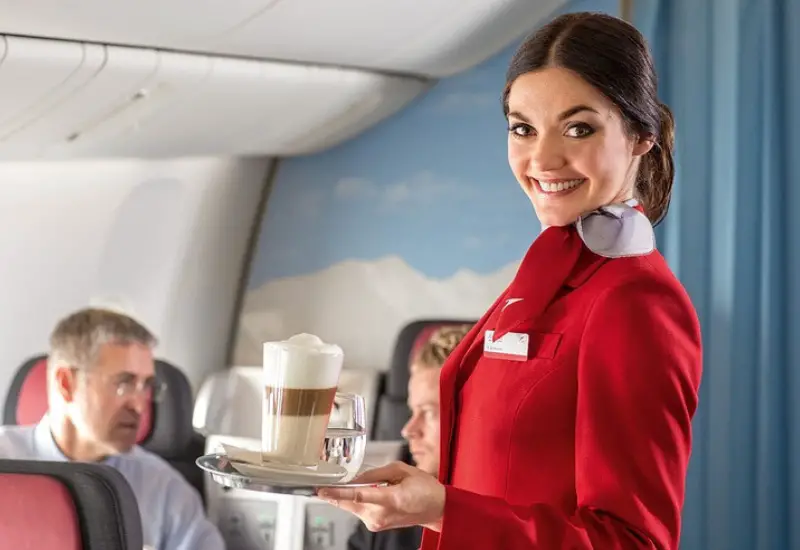
In this article, I’m going to cover the very basic requirements needed to become a flight attendant.
I’ve put all this together based on my experience as an international flight attendant and from discussions from my many friends and colleagues in the airline industry.
I’ve included the official and the not-so-official requirements of airlines and I’ve given you some very handy and practical tips on what to expect and what to do when you are pursuing a flight attendant career.
Table of Contents
1) Nationality – can I work anywhere in the world?
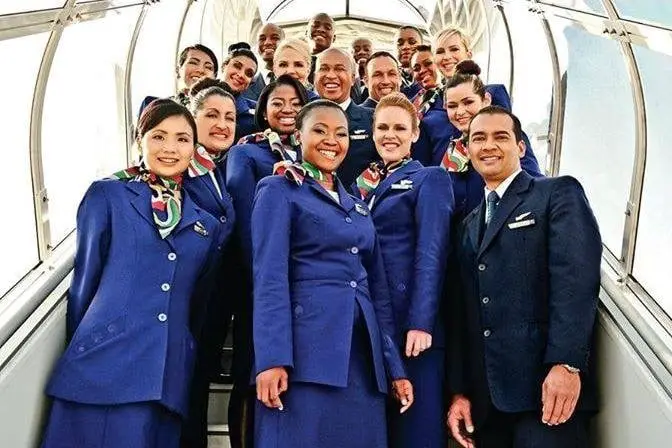
‘Can a Non-US citizen work as a flight attendant for US airlines?’ and, ‘Is it possible to get a flight attendant job for a European airline if I am an American citizen?’
The answer to both those questions is, yes.
Nationality is not usually a job defining issue for airlines, but you will need to be a legal resident in the country that you are based in and you must also have a working visa.
Be aware that most airlines will NOT provide visa sponsorships for flight attendants and that they won’t consider your application unless you can prove that you have a working permit for the country in which you will be based.
As far as I know, only a few private jet companies, the Middle East airlines such as Emirates, Qatar, or Etihad and some Asian airlines like – Cathay Pacific, Hainan Airlines, China Southern will arrange a work visa for you. These airlines are known for hiring a mix of people from different countries up to a certain quota. So if you want to work for one of these, then go for it.
2) Age – Is there an upper and lower limit?
All airlines have a minimum age requirement . For most, it’s eighteen years old. But it can be twenty or twenty-one for some US companies.
The maximum age limit to become a flight attendant is never usually mentioned in application documents or referred to in interviews, as it would be work discrimination based on age.
Ageism, in a word.
So let’s talk about this uncomfortable subject for a bit.
Although it’s seldom mentioned, even in this day and age we see cases of age discrimination in the airline industry.
Some companies exclusively hire only young flight attendants, especially in Middle East and Asian airlines , it’s very unlikely that you will find employment as a flight attendant after you are thirty to thirty-five years old. This especially applies if you have no previous experience in the job.
From the point of view of these companies, an employee in their twenties can focus more on their career since they will have no family responsibilities. They will be more flexible, complain less and better represent the company’s public image.
And because of this branding , companies like Emirates , Qatar, Etihad Gulf Air , usually hire people between 21 and 32 years old .
Even though there’s not always a maximum age requirement written into their job specifications, they still have a marked preference for younger candidates.
The same thing happens in Asian companies like China Eastern, Singapore Airlines, Thai Airways, Air China, Eva Air, or China Eastern – the maximum age is around 27 to 28 .
But having said that, you can still try for a position. I have two friends who joined Emirates at the ages of 33 and 35. So it is possible. Not easy, but possible.
Lordy, Lordy, I feel so old as I am writing this. No, not old; mature and experienced and having a huge amount to offer!
But take heart, US airlines and some EU airlines are very accepting of anyone who is above their minimum age requirement.
In Europe , the maximum age limit (even though unspoken) is more flexible, but it does depend on each airline.
In British Airways, Easyjet, Finnair, there is no age limit at all and they will even hire people over 50 years old.
Also, all the American and Australian companies hire candidates of any age above the minimum.
That’s a big ‘Bravo!’ from me to all those companies.
It’s bewildering to know that such things are still happening in this day and age, but I guess it’s just the mentality of the individual country and the airline company’s culture.
I’ll give you an example of what Qatar Airways Chief Executive, Akbar Al Bake, once said at a business conference.
Feel free to get angry:
“By the way, the average age of my cabin crew is only 26 years, so there is no need for you to travel on these crap American carriers. You know you are always being served by grandmothers at American carriers.”
Thankfully and rightly, after this he had to apologize and write a letter doing so to the AFA (Association of Flight Attendants), a union group of more than 50,000 flight attendants from over 20 American airlines.
TIP: It’s not a bad idea to go to their website https://www.afacwa.org/ and do some research about your future career.
More on this topic : Am I Too Old to Be a Flight Attendant?
3) Minimum height – how short is too short?

So exactly what is the height requirement to be a cabin crew member?
This is established by each company and you’ll normally find the information on their application websites.
Generally, it varies in general between 5 feet 2 inches (158cm) and 6 feet 1 inch (185cm).
The reason for the minimum height requirement is that a flight attendant must be able to reach the safety equipment placed in the overhead compartments in order to carry out emergency procedures .
But while the requirement is mainly for safety reasons, it is also to help passengers who are boarding to find space, or to make space, for their luggage.
The maximum height is not a problem, there are not many airlines putting a maximum height requirement, so being tall is usually an advantage, although being too tall in the confines of an aircraft may be less than comfortable on a long trip.
But there are some airlines that don’t want their cabin crew to be too tall because their planes are smaller and they have less headroom. In these cases, staff need to be less than 6 feet 1 inch or 185cm.
Let’s look at some examples for the height requirement in different airlines:
European Airlines:
- British Airways: from 5’2 to 6’1 (157cm to 185cm)
- Aer Lingus: from 5’2 to 6’2 (158 cm to 182 cm)
- Iberia: minimum 164 cm women; 175cm men
- Lufthansa: 158 cm
- Swiss Air: 158 cm
Middle East Airlines:
- Emirates: minimum height of 160cm+arm reach of 212cm
- Air Arabia: 160cm
- Oman airlines: 157 cm
Asian Airlines:
- Singapore Airlines: 158cm females; 165cm males
- Air Asia: 157cm females; 173cm males
- Philippines airlines: 5’3″ females; 5’6″ males
US Airlines:
- Mesa Airlines: 4’11”-6′
- PSA: Minimum 5’2″
You’ll find more examples in my article How Tall Do I Need to Be to Become a Flight Attendant?
To check that the height you mentioned in your resume corresponds to your actual height, on the day of the interview many airlines will measure you without your shoes on.
But there are some airlines that don’t measure your height. Instead, they’ll make you do a little test to make sure that you’ll be able to reach the overhead compartments on the plane.
This is called the arm-reach test , which I think is a much fairer way to go.
In the arm-reach test, the required height will be marked on a wall with a sticker and candidates will be called and asked to remove their shoes and then they’ll have to raise their arm/s to see if they can reach the mark.
Examples of airlines arm reach requirements are:
- Etihad : able to reach 212 cm without shoes.
- JetBlue : able to reach 6’3” without shoes.
- Frontier Airlines : ability to reach into overhead compartments with a height of 67” and depth of 28
- Cathay Pacific : able to reach 208 cm without shoes.
Is it possible to be a flight attendant if you are short?
If your height is below the requirement, don’t panic, you do have a few options:
- You can still try the airline that you wish to work for if you are only one or two centimeters below the requirement. Any shorter than that and it really doesn’t make much sense in you applying.
- You may be rejected by an airline, but why not try a different one? You might get lucky if they don’t have enough applicants and they waive their height requirement.
- The other option is to apply to airlines that don’t have a height requirement or the ones that are asking only for the arm-reach test instead of a minimum height.
4) Education, languages – what do I need?

In most airlines, you need to have completed secondary education or have finished High School .
To be honest, it does help if you have achieved a higher level of education than that.
But, look, if you don’t have a College or University education, don’t worry, it’s not mandatory.
It’s only some Asian airlines or private aviation companies that ask for a university degree.
In terms of languages, English is a basic requirement for any airline in the world .
You’ll need to have a high level both in speaking and writing it. This is a must.
English is the international language of the aviation world, from the cockpit to the control tower.
And, depending on the airline, you may also need a second language.
In Europe , for example, they usually require you to speak the language of the home country where the airline is based as well as English.
For example:
- Air France will ask their cabin crew to speak French and English.
- KLM, the national Dutch carrier: Dutch, and English
- Iberia, the Spanish flag carrier: Spanish and English.
Of course, if you speak a third language this will be highly valued, but it’s not necessary.
Can I apply for a cabin crew job if I can’t speak English?
Yes and no.
You don’t need to speak English like a native, but you will have to use English almost every day at work and study many things that are written in English as part of your training.
If you are not a native English speaker, your English will be tested on the day of the interview.
So your chances for success are enhanced if you are as fluent as you can possibly be in the language.
So polish up your skills before you apply. Go to some language exchange meetups, take some conversation classes, and travel abroad to English-speaking countries.
English is not as hard a language to speak as some people make out, so a little practice really does go a long way.
You can find more about this in my article: English for Cabin Crew: how to improve it and pass your interview.
5) Swimming skills – is it really necessary?
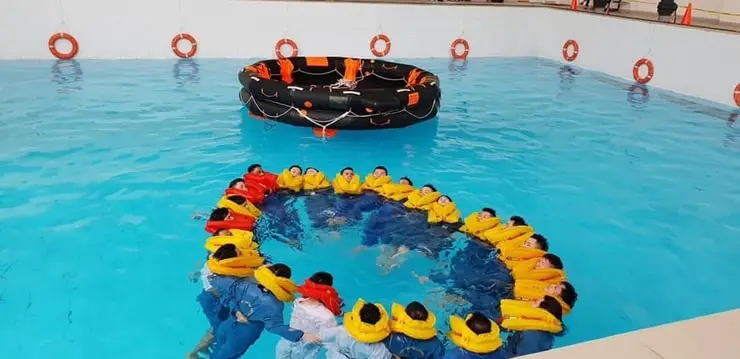
During the cabin crew licensing training course, you will have to pass a test to prove that you can swim.
In many countries in Europe, for example, you must be able to swim 50 meters in less than 2 minutes and 30 seconds to pass.
In other countries, it’s enough to be able to swim 50 meters unaided across a pool that’s about 2 meters deep, with no timing.
The test is usually not done wearing a swimming suit, it’s done in full clothing to simulate a plane-ditching situation.
Each airline will have different exercises, so if you ask me what the swimming tests are like in training, I can only guide you from my personal experience.
- First, you swim 50 meters – which is an Olympic pool size – with your clothes on.
- Next, you have put your lifejacket on, jump in the water, inflate your lifejacket, and swim back to the end you started from.
- You will have to drag someone from one end of the pool to the other with both of you wearing a lifejacket.
- You must demonstrate that you can tread water for 1 to 2 minutes without wearing a lifejacket.
- Jump into the water, swim to the middle of the pool, climb onto a life raft and help others to get on board.
- Complete 8 meters of continuous underwater swimming
You’ll probably spend the whole morning doing this, but that’s basically all there is to it.
Which probably sounds like more than enough to you.
You can find more about this topic in my article: Do You Need to Be Able to Swim to Be a Flight Attendant?
Look, I’m not a confident swimmer, can I still be cabin crew?
If you don’t know how to swim, or if you are not very confident in the water, it’s okay, you don’t have to be an amazing lifeguard, just be able to complete the tests.
However, I would recommend that you take swimming classes before the training starts or go to the pool, and until you are totally confident in the water.
In these videos, you can see some examples of the training that is done.
BAA Training: ditching and water survival
KLM training in water
And don’t get too nervous – your classmates will be in the same position and people who are confident will help you, everyone is in it together and will be supportive.
Don’t worry.
6) Health requirements – how strict are these?
Once you have passed the cabin crew training course, you will have to successfully pass an aeronautical medical examination .
In Europe, for example, we need to pass the EASA class 2 aeromedical examination in order to be allowed to fly.
These tests are carried out by an aeromedical doctor and all new cabin crews are required to take this initial medical exam in order to get their license.
Then after every 5 years up to the age of forty, or every 2 years if you are between forty and fifty years old .
If you develop a medical condition, or if you come back from a long illness, then you may need to take this test again.
But if you are a normally fit and healthy person, the medical is a pretty easy one to pass.
So exactly what does an EASA class 2 medical exam consist of?
- Your medical history : the doctor will ask you questions about previous illnesses.
- Weight and height : weight should be proportionate to height.
- Urine test : to detect drugs or diabetes. Remember that it is totally prohibited to consume drugs, and if during your career as a flight attendant drugs are detected in your test you will lose your job immediately. No ifs, no buts, no excuses.
- Blood test: checking for abnormalities such as anemia, cholesterol, or epilepsy.
- Blood pressure : to detect hypertension.
- Electrocardiogram: to test your heart rate and detect arrhythmias or heart disorders.
- Hearing and sight test: if you wear glasses or lenses don’t forget to take them. You will be OK with astigmatism not exceeding 2 dioptres and hypermetropia or myopia not exceeding 5 dioptres. Also, color vision testing is usually carried out using the Ishihara test.
- Spirometry (in the initial test only): to detect abnormalities in the lung or respiratory function such as asthma.
How much does the aeromedical test cost?
Most airlines will pay for this once you are hired.
But if you need to pay for it yourself, the cost can vary a lot.
It depends on the medical center, the country, even the province and whether or not it’s an initial examination or the extension of a previous one.
Generally, the range is somewhere from €150 an extension to €280 for an initial.
Other requirements to keep in mind
There are other requirements that I didn’t mention here, but just briefly, here are some of them:
- Criminal record check certificate: if you’re in the United Kingdom or US you will also be required to provide a 5 or 10 year checkable background. You’ll have to give details about your employment and education history in the last 5-10 years without leaving any gaps.
- Flexible in geographical relocation: as a flight attendant you need to be ready to be based in any city. The company will decide where that will be, so re-location is a large aspect of becoming a flight attendant that you definitely need to be aware of.
- Customer service experience really does count. Fortunately, if you don’t have any, it’s a skill that is very easy to acquire. No need to get a job specifically for this thing outside of the box. What about volunteer work? Charity shops, tour guiding for a local historic site, anything that gets you interacting with customers will be invaluable.
- No visible tattoos , piercings, extreme hair colors, or hairstyles.
I know what you’re thinking, this all seems to be more difficult than trying to get into NASA.
But it’s not, you just need to be a little bit lucky and research all about the recruitment process in the airline you want to work for and, most important of all, prepare yoursel f.
I’m not going to lie.
It’s a long process.
It will probably take you a couple of months , and the training will be hard and intense , but you’ll meet a lot of lovely people and in the end, it will all have been worth it.
I wish you the best of luck!
And if you have any questions, I’ll be in the section comments down below!
Similar Posts:

About The Author
I’m 4’11 I live in South Carolina would they accept me if I’m 4’11
Hi Britney! Fortunately, in the US, many airlines have shifted away from strict height criteria for flight attendants. So it depends on the airline. I recommend checking out this article I wrote on how tall do I need to be a flight attendant .It goes into depth on the topic and should provide you with some valuable insights. Best of luck on your journey!
Hi Coral so you really think I have a chance of getting my dream being real of becoming a flight attendant even though English is my second language and most airlines that I have read the requirements said that writing is a requirement and that’s where I have difficulty of spelling words😞. The good thing is that I can read and speak two languages Spanish is my first.
Leave a Comment Cancel Reply
Your email address will not be published. Required fields are marked *
FLIGHT ATTENDANT CLUB

HOW TO BECOME A FLIGHT ATTENDANT
Start Your Career as a Flight Attendant with Our Expert Tips and Advice
Looking to kickstart your career as a flight attendant? Look no further than our Career section, where you’ll find all the resources you need to succeed. Whether you’re a recent graduate looking to break into the industry or an experienced flight attendant looking to advance your career, we’ve got you covered. From job search strategies and interview tips to training programs and professional development opportunities, our Career section is your go-to resource for all things flight attendant. With our expert advice and insider knowledge, you’ll be well on your way to achieving your dream of flying the skies as a successful flight attendant.
Your ultimate guide to becoming a flight attendant: tips and tricks for landing your dream job, isabella’s journey: from small-town café to soaring the skies as a flight attendant.
Once upon a time, in a small town nestled between the mountains and the sea, there lived a young woman named Isabella. She spent her days working at a local café, brewing coffee and serving pastries to the townspeople. But Isabella always felt a yearning deep within her heart – she wanted more than anything to fly high in the sky and travel the world. She was passionate about providing exceptional customer service and the satisfaction she felt when she could brighten someone’s day. The idea of combining her love for the skies and the joy of helping others led her to dream of becoming a flight attendant.
Are you dreaming of becoming a flight attendant too?
If you’re like Isabella and have your heart set on a career that soars above the clouds, you’re in the right place. With a decade of aviation experience, I have crafted a comprehensive guide that will help you navigate the journey from aspiration to application and, ultimately, to success. Follow these steps, and you’ll be well on your way to joining the ranks of flight attendants who grace the skies.
Step 1: Research the industry of becoming a flight attendant too?
Begin your journey to becoming a flight attendant by immersing yourself in the aviation industry and understanding the role, responsibilities, and qualifications involved. Explore various airlines and their company cultures, and read books, blogs, and forums to gain insights and advice from current flight attendants. This comprehensive understanding will help you determine if this career path aligns with your goals and desires. Essential skills for flight attendants include excellent communication, customer service, problem-solving, adaptability, and teamwork. By developing these skills, you will be well-prepared to thrive in this exciting and rewarding profession.
For example, you may discover that some airlines prioritize language skills, while others place a stronger emphasis on customer service experience. Understanding these differences will enable you to tailor your approach and better prepare for the application process.
Step 2: Assess and develop your skills
Flight attendants need exceptional communication and customer service skills, problem-solving, teamwork, as well as the ability to remain calm under pressure. Make a list of your strengths and areas for improvement, and work on developing the necessary skills to excel in the role. Participate in public speaking or customer service workshops to build your confidence and abilities.
TOP 15 Flight Attendant Skills that Recruiters are looking for:
- Communication skills : Flight attendants must be able to effectively communicate with passengers, crew members, and other airline staff, both verbally and nonverbally. Clear communication is vital for ensuring passenger safety and providing excellent customer service.
- Customer service : A flight attendant’s primary role is to ensure passenger comfort and satisfaction. Excellent customer service skills, such as empathy, attentiveness, and problem-solving, are essential for addressing passenger needs and creating a pleasant travel experience.
- Teamwork : Flight attendants work closely with their colleagues to ensure smooth and efficient flight operations. Strong collaboration and interpersonal skills are crucial for fostering a positive and supportive work environment.
- Adaptability and Flexibility: The ability to remain flexible and adapt to changing situations is essential for flight attendants, as they may encounter unexpected challenges, such as flight delays, turbulence, or medical emergencies.
- Time management : Flight attendants must efficiently manage their time to complete various tasks, such as serving meals, conducting safety checks, and addressing passenger concerns, all within the constraints of a flight schedule.
- Stress management : The ability to stay calm and composed under pressure is crucial for flight attendants, as they often face demanding situations, such as handling unruly passengers or managing emergency situations.
- Safety Awareness: Flight attendants must have an excellent understanding of safety procedures and regulations to ensure the wellbeing of passengers and crew. They are responsible for conducting pre-flight safety briefings, checking emergency equipment, and effectively handling emergency situations if they arise.
- Ability to Follow Rules and Standard Procedures: Adhering to airline and regulatory guidelines is essential for maintaining the safety and efficiency of a flight. Flight attendants must strictly follow these protocols, from enforcing carry-on luggage policies to ensuring passengers adhere to seatbelt and electronic device restrictions.
- Organization: Flight attendants must juggle multiple responsibilities during a flight, such as serving meals, attending to passenger requests, and managing cabin inventory. Strong organizational skills help them prioritize tasks and efficiently use their time to meet the diverse needs of passengers and crew.
- Empathy and Understanding: Flight attendants interact with passengers of diverse backgrounds and needs. Exhibiting empathy and understanding is crucial to creating a comfortable and supportive environment for all travelers, which can include providing assistance, addressing concerns, and diffusing any conflicts that may arise.
- Cultural sensitivity : Flight attendants interact with passengers from diverse backgrounds and cultures. Being respectful and understanding of different customs and traditions is vital for providing exceptional customer service and promoting a welcoming environment.
- Attention to Detail: Flight attendants must be vigilant in observing their surroundings and ensuring passenger safety. Strict adherence to airline standards in safety and service delivery is essential. Keen attention to detail allows them to identify potential issues and maintain high standards of cleanliness and presentation.
- Going Above and Beyond: To provide exceptional customer service, flight attendants must be willing to go the extra mile to meet passengers’ needs and exceed their expectations. This may involve anticipating requests, personalizing interactions, and actively seeking ways to enhance the travel experience.
- Impeccable Grooming and Dress Code Presentation: Flight attendants are expected to maintain a professional and polished appearance as they represent the airline’s image. This skill involves adhering to strict grooming and dress code standards, which may include maintaining a neat hairstyle, wearing a well-fitted uniform, and practicing good personal hygiene. A well-groomed and properly dressed cabin crew creates a positive first impression, enhancing passengers’ overall travel experience.
- Multilingualism : Proficiency in multiple languages can be a significant advantage for flight attendants, as it allows them to communicate more effectively with passengers from around the world and provide a higher level of customer service.
Step 3: Pursue relevant certifications
While a high school diploma is often the minimum educational requirement, having additional certifications can give you a competitive edge. To stand out in the competitive application process, consider obtaining certifications that demonstrate your commitment to the profession. Some possibilities include:
- First Aid and CPR certification: As a flight attendant, you’ll be responsible for passengers’ safety. First aid and CPR certifications showcase your preparedness for emergencies.
- Hospitality or tourism courses: Earning a diploma or degree in hospitality, tourism, or a related field can strengthen your application and provide valuable industry knowledge.
- Foreign language proficiency: Airlines value multilingual flight attendants who can communicate with passengers from diverse backgrounds. Consider learning a popular language like Spanish, Mandarin, or Arabic.
Step 4: Create a polished resume and cover letter
A well-crafted resume and cover letter are essential in showcasing your qualifications and enthusiasm for the role. To make your application stand out:
- Use clear, concise language and focus on your achievements, not just job responsibilities.
- Tailor your resume and cover letter for each airline, addressing the company’s specific values and requirements.
- Quantify your accomplishments whenever possible, such as “Increased customer satisfaction by 15% through proactive problem-solving.”
Step 5: Apply to airlines
Identify airlines that align with your values and goals, and submit your tailored applications. Keep track of your applications, including dates, contact information, and responses, to stay organized during the process. Don’t be discouraged if you don’t receive immediate responses; the process can be competitive, and patience is key.
Step 6: Prepare for interviews
Effective preparation is crucial for success in interviews. To maximize your chances of making a positive impression:
- Research the airline’s history, mission, and values to demonstrate your knowledge and enthusiasm during the interview.
- Practice common interview questions, such as “Why do you want to be a flight attendant?” or “Tell us about a time you handled a difficult customer.”
- Prepare a few anecdotes from your experiences that showcase your skills, such as teamwork, problem-solving, or adaptability.
Step 7: Dress the part – Immaculate personal presentation and impeccable grooming during the assessment and interview
Your appearance plays a significant role in creating a lasting impression during the assessment and interview process. Flight attendants represent the airline’s image and are often the first point of contact for passengers, so immaculate personal presentation and impeccable grooming are essential. Recruiters pay close attention to details, and it only takes a few seconds for them to form an opinion based on your appearance. This includes the quality of your CV, your shoes, nails, makeup, and hair. To ensure you make the best possible impression, adhere to the following guidelines .
- Dress professionally in attire that aligns with the airline’s dress code or uniform standards.
- Maintain a neat, well-groomed hairstyle that is styled appropriately and does not obstruct your face.
- Keep your makeup subtle and natural-looking , avoiding excessive or bold colors.
- Ensure your nails are clea n, well-manicured, and painted in neutral colours, if at all.
- Select polished, professional shoes t hat complement your outfit and meet the airline’s guidelines.
In addition to the guidelines mentioned earlier, it’s crucial to pay attention to your dental hygiene, smile, and fragrance, as these are important aspects of your overall appearance and impression:
- Great smile : A genuine, warm smile is a valuable asset for a flight attendant, as it creates a welcoming and friendly atmosphere for passengers. Ensure that your teeth are clean, well-maintained, and free of any visible issues. Regular dental check-ups and professional cleanings can help keep your smile looking its best.
- Dental hygiene : Fresh breath is a must, as you’ll be in close proximity to passengers and colleagues during flights. Maintain good oral hygiene by brushing and flossing regularly, and consider carrying breath mints or mouthwash for on-the-go freshness. Avoid consuming strong-smelling foods or beverages prior to your interview or assessment.
- Fragrance : While it’s important to smell pleasant, be mindful of using overwhelming perfumes or colognes, as strong scents can be off-putting or cause discomfort for those with sensitivities. Opt for a subtle, fresh fragrance that complements your natural scent.
Incorporating these aspects into your personal presentation will further enhance your overall image and demonstrate your attention to detail. A great smile, proper dental hygiene, and a pleasant fragrance contribute to the impression of professionalism and approachability that is vital for a flight attendant. By ensuring that every aspect of your appearance aligns with the expectations of the role, you’ll significantly increase your chances of impressing recruiters and succeeding in your pursuit of a flight attendant career.
For example, imagine a candidate named Sarah attending an interview for a prestigious airline. She meticulously prepares her CV, ensuring it is polished and error-free. She chooses a conservative navy-blue suit, tailored to fit her perfectly, and pairs it with a crisp white blouse. Her hair is neatly styled into a bun, and her makeup is minimal and natural-looking. She completes the ensemble with a pair of black pumps, meeting the airline’s requirements. Upon entering the interview room, Sarah instantly conveys an air of professionalism and poise. The recruiters notice her immaculate appearance and impeccable grooming, recognizing her commitment to the role and understanding of the airline’s values. In just a few seconds, Sarah has made a lasting impression that sets the stage for a successful interview. By dressing the part and presenting yourself professionally, you demonstrate your dedication to the role and your understanding of the importance of personal presentation as a flight attendant. This attention to detail and commitment to excellence will not go unnoticed by recruiters and will help you stand out from the competition.
Step 8: Complete Flight Attendant training
Once you are hired, you will need to complete the airline’s training program. This may include classroom instruction, hands-on practice, and even in-flight experience. Embrace this opportunity to learn and grow, as it will be the foundation of your career as a flight attendant.
Isabella, fuelled by her passion for the skies and the joy of helping others, followed these steps diligently. She prepared herself, sought relevant certifications, and refined her skills. After a competitive application process, she finally earned her wings and began her journey as a flight attendant. Now, she soars above the clouds, bringing joy and comfort to travellers from all corners of the world. Remember, preparation is the key to success. With dedication, persistence, and a passion for the skies, you too can achieve your dreams and join the ranks of flight attendants who make the world a better place.

Expand Your Horizons: Essential Resources and Blogs for Aspiring Flight Attendants
If you’re eager to delve deeper into the world of flight attendants and further enhance your understanding and preparedness for this exciting career, there are a wealth of resources and blogs available to provide valuable insights and guidance. By exploring these informative sources, you’ll gain a comprehensive perspective on the profession, enriching your journey toward becoming a successful flight attendant.
These resources offer a plethora of information, from personal anecdotes and advice to industry news and trends. They can be instrumental in honing your skills, refining your application, and preparing you for the various stages of the recruitment process. As you immerse yourself in these materials, you’ll find inspiration, motivation, and practical tips that can make all the difference in your pursuit of a rewarding career in the skies.
So, embark on a journey of discovery and immerse yourself in the wealth of knowledge available through these resources and blogs. Let them be your guiding light as you navigate the path to becoming an exceptional flight attendant, ready to soar the skies and create unforgettable experiences for passengers from all walks of life.
HOW TO BECOME A FLIGHT ATTENDANT BLOGS

Mastering the Emirates Cabin Crew Open Day: Key Traits Recruiters Search For
Stepping into the competitive arena of the Emirates Cabin Crew Open Day, aspiring candidates are not just evaluated on their qualifications but on their potential to embody the essence of one of the world’s most luxurious airlines. This detailed guide aims to navigate you through the Open Day, highlighting key traits…

Emirates Airlines Cabin Crew Photo Guidelines: The Key to a Successful Application
A polished application photo is the gateway to a career with Emirates Airlines, one of the most prestigious carriers in the world. Aspiring cabin crew members often seek advice on how to create the perfect submission photo, yet many fail to meet the stringent standards set by the airline. Crafting the…

Emirates Airlines Flight Attendant Requirements: Decoded and Explained
Introduction: Hello, future sky explorers! If you’ve ever dreamt of gracing the skies as an Emirates Airlines Flight Attendant, you’re in the right place. Today, we’re unraveling the intricacies of the Emirates Flight Attendant requirements – the key that unlocks the doors to your aviation dreams. English Language Proficiency: Unlocking the…

Emirates Airlines Flight Attendant Journey: Unveiling Excellence, Perks, and Dubai Delights
Hey future sky explorers! If you’re dreaming of a career as a flight attendant with Emirates Airlines, you’re in for the ride of a lifetime. Picture yourself stepping into the world of Emirates, where every journey is a story waiting to be told. I’m here to share why joining the Emirates…

Mastering Resilience: A Guide for Aspiring Flight Attendants Facing Rejection
Introduction Embarking on the journey to become a flight attendant is a pursuit fueled by dreams and aspirations. The path, however, is laden with challenges, rigorous tests, and fierce competition. The key to success lies not in succumbing to setbacks but in using them as steppingstones for personal and professional growth.…

How Flight Attendants Handle Medical Emergencies in the Sky
Discover how flight attendants handle medical emergencies at 35,000 feet. Explore their training, protocols, and the critical role they play in ensuring passenger safety and well-being.

How to Ace Your Cabin Crew Assessment and Interview: Impress the Recruiter and Soar High in Your Career
Introduction Aspiring flight attendants, the journey towards your dream job starts with acing the cabin crew assessment and interview. The process can be challenging, but with the right preparation and mindset, you can create a great impact on recruiters and stand out among the competition. In this blog, we’ll discuss essential…

Flight Attendant Hourly Pay: A Comprehensive Guide to Earnings and Factors in the USA
Introduction The flight attendant profession garners much interest for its diverse work environment and opportunities for travel. One common question is: how much do flight attendants make per hour in the USA? In this comprehensive guide, we will delve into the average hourly pay, explore the factors affecting flight attendant earnings,…

Oscar-Worthy Performances: The Role of Flight Attendants in Ensuring Safe and Enjoyable Flights
As the Oscar Academy Awards have recently celebrated great actors for their performances, it’s important to acknowledge that flight attendants also act every time they go to work. Similar to actors in movies, flight attendants have a role to play when they are on board an aircraft. Their role is to…

From APU to Zulu: Flight Attendants’ Guide to Aviation Terminologies
As a flight attendant, it’s important to have a good understanding of the aviation industry and the terminologies used within it. From technical terms to everyday language, there are many phrases and acronyms that flight attendants need to be familiar with in order to communicate effectively and perform their duties with…

6 Essential Tips for Aspiring Flight Attendants to Land Their Dream Job
Introduction: As a seasoned flight attendant who has been in the industry for several years and has also done recruitment for cabin crew positions, I understand the challenges that aspiring flight attendants face in landing their dream job. With the high volume of applications that airlines receive daily, it can be…

Preparing for Your Flight Attendant Interview: Answering the Top 20 Questions Recruiters Will Ask
The role of a flight attendant requires a unique set of skills and qualities. Recruiters are often tasked with finding the most qualified and capable candidates to fill these positions. As a flight attendant applicant, it’s essential to be prepared for the questions that recruiters are likely to ask during the…

Is Being a Flight Attendant Right for You? Pros and Cons to Consider
Working as a flight attendant can be an exciting and rewarding career for many individuals. It offers opportunities to travel, meet new people, and gain valuable skills. However, like any job, there are also downsides to consider. In this blog, we will explore the pros and cons of working as a…

The Importance of Height in Selecting Flight Attendants: Ensuring Safety and Comfort in Air Travel
Height is an essential factor in selecting flight attendants. Airlines worldwide impose strict height requirements for legal and safety reasons, which must be met by all candidates who apply for the job. In this article, we will explore the significance of the height requirement for flight attendants and understand why it…

Creating the Perfect Cabin Crew Application Photo: A Comprehensive Guide
As a cabin crew applicant, you want your portfolio to stand out and catch the recruiters’ attention. One key way to achieve this is by submitting a photo that is impeccable and meets the minimum requirements for a flight attendant job. Image is everything in this industry, and your photo is…
Are you finding our blog posts on how to become a flight attendant helpful? We would love to hear from you! Aspiring and current flight attendants, we value your feedback and comments. Our goal is to provide you with the most informative and relevant content to help you achieve your dream of becoming a flight attendant. So, if you’re enjoying our different blog posts on this topic, let us know which tips and tricks you found the most valuable. We’re always looking to improve and would love to hear your thoughts!
Share this:.
Flight Attendant Requirements
Becoming a flight attendant is an exciting and challenging career choice , which requires specific qualifications and personal traits. Flight attendants must meet the minimum age requirement of 18 years old and be legally authorized to work in the United States . Some airlines in other international airlines may have a higher age limit so it is important to check with the airline.
While the benefits and perks are great, the job also requires a lot of responsibility. In order to become a flight attendant , individuals must possess exceptional customer service skills and be friendly, courteous, and helpful while welcoming each passenger aboard the aircraft. Flight attendants are responsible for greeting passengers, making sure they feel comfortable and safe, and helping them with any requests throughout their journey.
You’ll need to meet several requirements, including physical characteristics and educational and linguistic qualifications. please check the list below for more information.
Age Requirements
A flight attendant needs to be at least 18 years old as that’s the legal minimum age to work in the United States.
Educational Requirements
Flight attendants usually need to have a high school diploma or equivalent. Some airlines also require at least one year of college education in a related field such as hospitality or customer service. However, a bachelor’s degree is preferred.
Linguistic Qualifications
Many airlines require fluency in at least two languages as being able to communicate with passengers who don’t speak the same language is a key part of the job. Some airlines may also require you to be able to read and write in different languages too.
Height Requirements
Most airlines set minimum and maximum heights for their flight attendants. Generally speaking, you should be between 5’0″ (152.4 cm) and 6’4″ (193.04 cm) tall. This is because cabin space is limited, and you need to be able to access overhead compartments and storage.
A certain height range allows flight attendants to move around the cabin easily while performing their duties.
Weight Requirements
Flight attendants must maintain a certain weight, which depends on their height and build, for safety reasons. So please check your Body Mass Index (BMI) before applying to know if you meet the requirements. You don’t have to have six-pack abs or be supermodel thin, but you should maintain a healthy weight for your height and build.
Skin Requirements
Visible tattoos , facial piercings, and certain non-natural hair colors are often strictly discouraged. But some airline companies (in Western areas) nowadays are now opening up to these changes, so make sure to check with the company you are applying for. If you want to apply for 5-star airlines based in the Middle East ( Emirates , Qatar , Etihad), be advised that they are conservative companies and follow strict guidelines and that piercings, visible tattoos while in uniform, and unnatural hair are not accepted. As for the skin, it does not need to be perfect , but you need to have a healthy skin since you are facing customers on a daily basis.
Teeth Requirements
A flight attendant must have good dental health and a pleasant smile . Some airlines may require that you undergo a dental exam before being hired to check for any problems such as cavities or gum disease. It doesn’t specifically say in most job postings that teeth must be complete, but just a thought to ponder, have you seen a flight attendant with missing teeth?

EyeSight Vision Requirements
Having good vision is important for flight attendants because they need to be able to read documents, monitor the cabin, and observe any potential hazards. Most airlines require that you have at least 20/30 vision or (20/40 depending on the airline) in both eyes with or without corrective lenses (eyeglasses okay) If your vision doesn’t meet the requirements, corrective surgery may be necessary.
Passport Citizenship Requirements
You must have a valid passport and also a valid work visa. Flight attendants must be able to travel internationally and have the necessary documents for this, some airlines may require that you pass a background check for security reasons. US airlines usually require applicants to be US citizens or permanent residents. But there are some airlines that offer the opportunity to work as flight attendants while traveling abroad and do not have this requirement. Please check with your airline first before applying.
Experience Requirements
Experience, as well as a degree in hospitality management or customer service-related fields, can be beneficial but usually, is not required. However, some airlines may require previous FA experience for higher-paying jobs such as VIP flight attendants for private jets .
Background Check
Most airlines require a criminal background check and credit score check to make sure that you don’t have any past misconduct or financial issues. You’ll also need to be able to pass a drug test since working in the aviation industry requires a high level of trustworthiness. Some airlines may ask for a physical examination to ensure your overall health and fitness.
It’s important to note that airlines have different requirements for their flight attendants, so it’s essential to check with the airline you’re interested in to ensure you meet their specific requirements.
Qualities and Personal Traits
It takes more than just meeting the physical and educational requirements to be a successful flight attendant. Here are some personal traits that airlines look for in candidates .
- Strong communication and interpersonal skills
- Good problem-solving ability
- Possess a good memory
- Excellent conflict-resolution and customer service skills
- Adaptability to changes
Why are flight attendant requirements so important?
Like any other customer service and frontline job, you are the face of the company and thus, you must be physically presentable and have a friendly attitude in order to successfully interact with passengers and provide excellent service.
Meeting the physical requirements ensures that you will be able to move around the cabin safely while having the right personality traits ensures that you are able to handle any situation that may arise during a flight.
An average day in the life of a flight attendant
Cabin crew act as ambassadors for their airline and are responsible for ensuring that everyone onboard has a safe, comfortable, and enjoyable journey. The life of a flight attendant is far from a predictable 9-to-5 job. Here are some examples of the duties and responsibilities of flight attendants:
- Welcoming passengers on board and assisting them during the flight, i.e., helping with luggage, seat assignments, and safety procedures
- Ensuring passenger safety by conducting safety checks before takeoff
- Serving food, drinks, and in-flight entertainment to passengers
- Attending to passengers who are feeling ill or upset
- Resolving conflicts between passengers
- Remaining alert and vigilant throughout the flight in case of emergency situations
Tips for the interview process and training
If you’re interested in becoming a flight attendant, here are some tips to help you to prepare for the interview process and any additional training :
- Conduct research on the airline and the role of a flight attendant.
- Ensure that you have an excellent resume with relevant experience and qualifications .
- Possess clear and concise communication skills.
- Dress appropriately for the interview , dressing up in your most professional attire is suggested.
Frequently asked questions
1. what is the minimum age requirement for becoming a flight attendant.
The minimum age requirement to become a flight attendant is 18 years. But please check your specific airline because some airlines may have different age requirements.
2. What qualifications do I need to become a flight attendant?
You need to meet certain educational and physical requirements, including having at least a high school diploma or equivalent and being between 5’0″ (152.4 cm) and 6’4″ (193.04 cm). Additionally, being able to speak more than 1 language other than English is an advantage.
3. What qualities should I possess to become a successful flight attendant?
You should possess strong communication and interpersonal skills, good problem-solving ability, excellent conflict-resolution and customer service skills, and adaptability to changes.
4. Is a college degree necessary to become a flight attendant?
No, a college degree is not mandatory. But, having a degree can boost your chances of being selected.
5. Do you need to be fluent in multiple languages to become a flight attendant?
It depends on the airline, but many airlines prefer candidates who are fluent in at least two languages.
If you’re an individual who loves to travel and connect with different cultures, becoming a flight attendant may be the perfect career choice. However, you must meet the required qualifications and personal traits. Ensure that you conduct research and prepare yourself for every step of the process to achieve your dream.
If you need to check the requirements for specific airline companies, please see the articles we’ve published for each organization below.
Spirit Airlines Flight Attendant Requirements and Qualifications
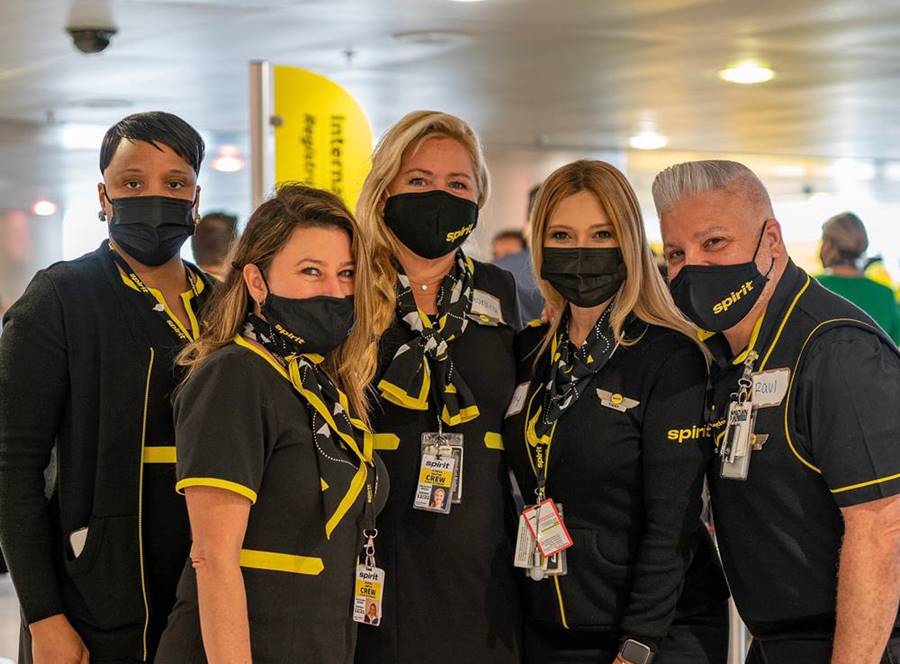
To qualify as a flight attendant with Spirit Airlines, applicants must be at least 21 years of age and have a high school diploma or equivalent. They must also be able to speak, read, and …
Juneyao Airlines Flight Attendant Requirements and Qualifications
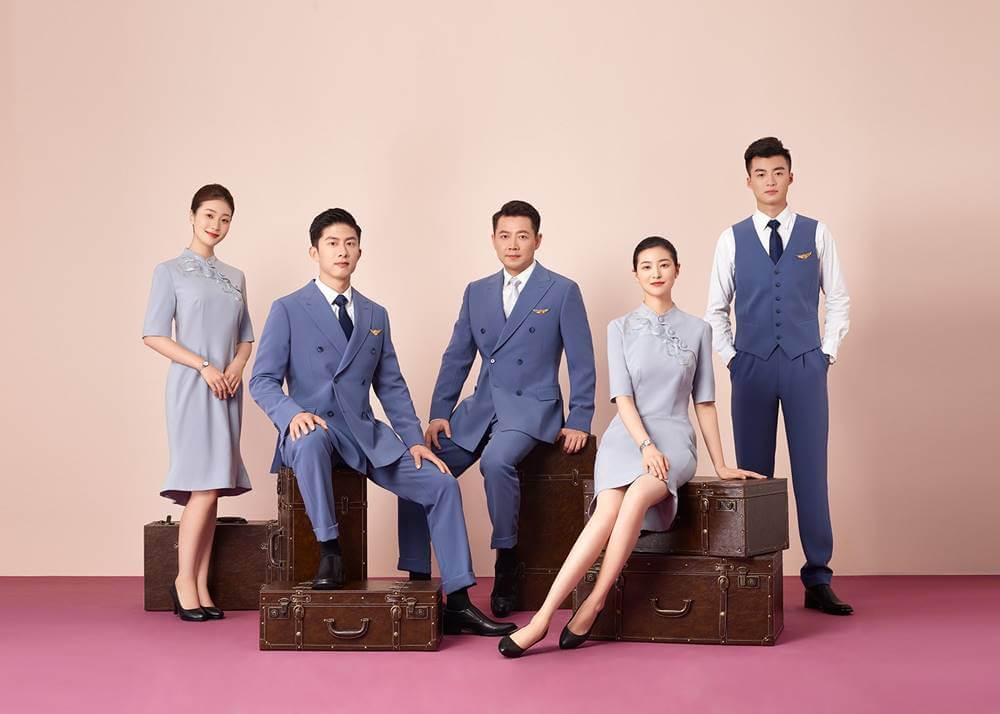
It’s year 2006 when Juneyao Airlines took its first flight. By 2013, Juneyao Airlines had acquired 35 brand-new Airbus A320 planes through self-purchase and leasing, and its flight routes from Shanghai started to cover over …
AnadoluJet Flight Attendant Requirements and Qualifications
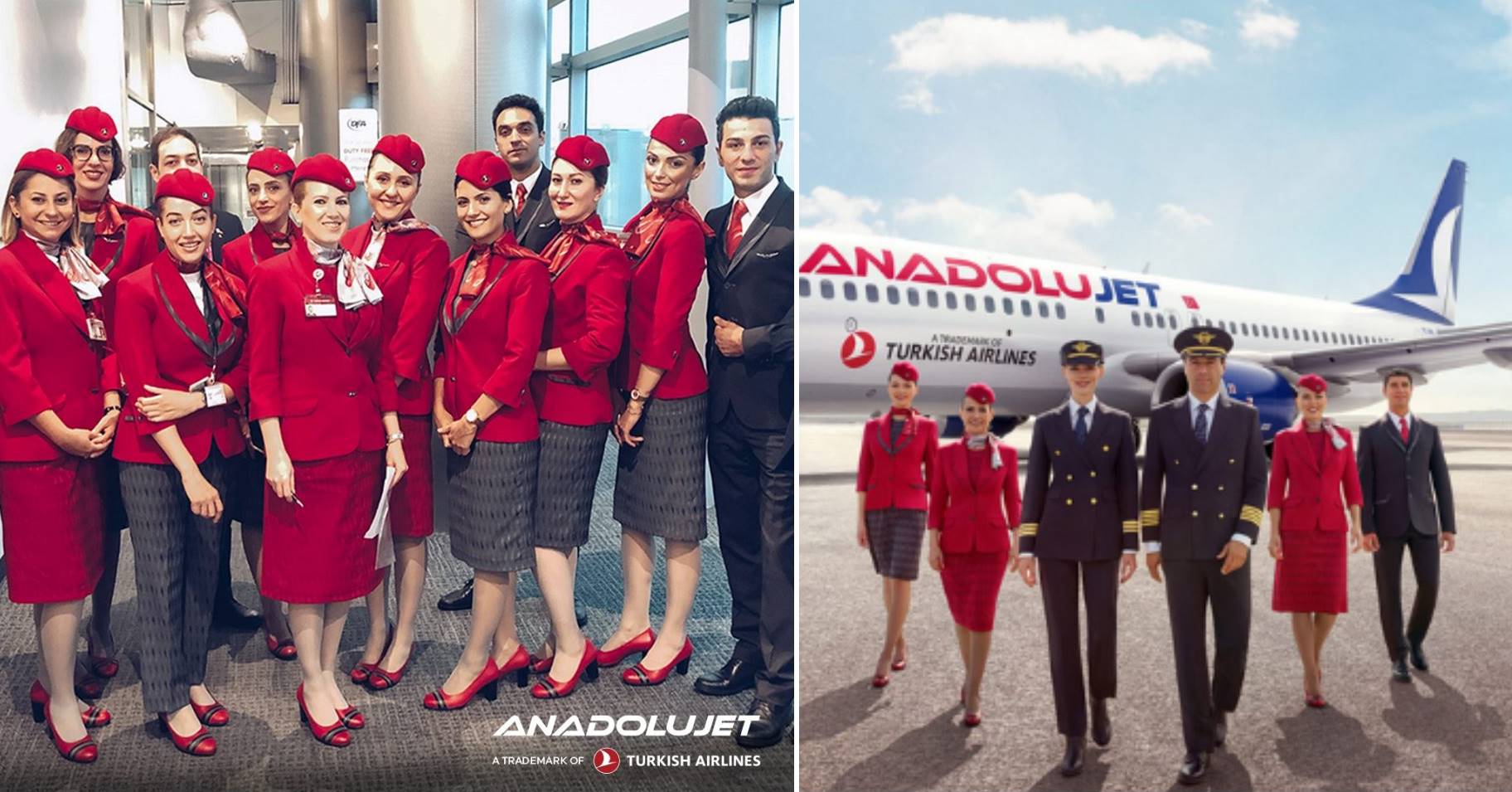
If you’re looking to build a stable career in the airline industry, applying for AnadoluJet as a flight attendant is a good start. AnadoluJet is a brand of Turkish Airlines that operates as a regional …
Chair Airlines Cabin Crew Requirements and Qualifications
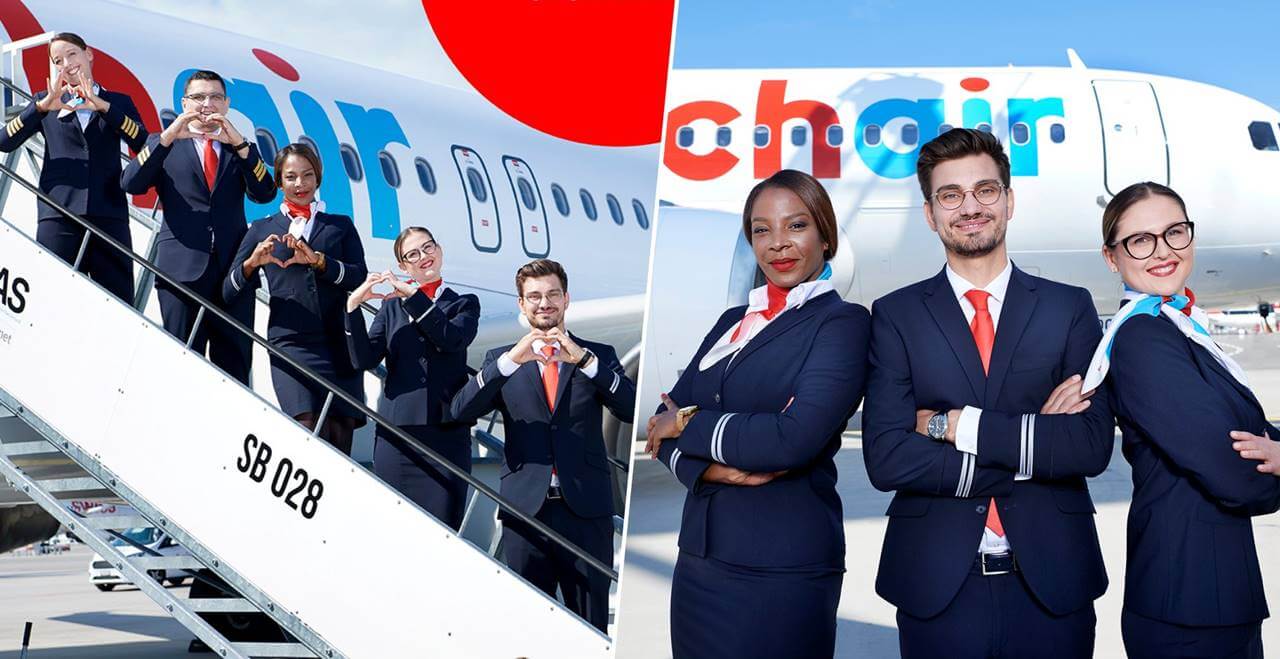
Chair Airlines is Switzerland’s newest aviation provider, prioritizing mostly leisure travel and commercial flights. Established last 2019, the airline company has been making a name in the aeronautical industry with its continuous progression. With the …
Air Seychelles Cabin Crew Requirements and Qualifications
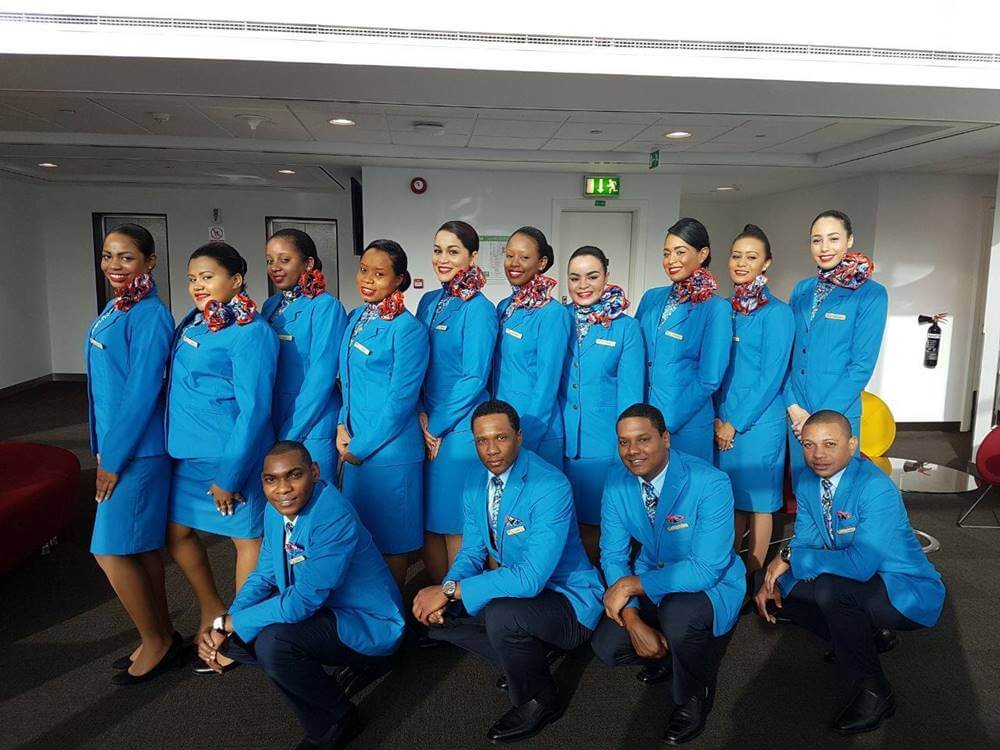
Seychelles’ National Airline was established in 1977 and renamed ‘Air Seychelles’ in 1978. The airline began long-distance operations in 1983 and is still one of the tourism pillars contributing to the island’s fastest-expanding economic sector. …
Bangkok Airways Cabin Crew Requirements and Qualifications
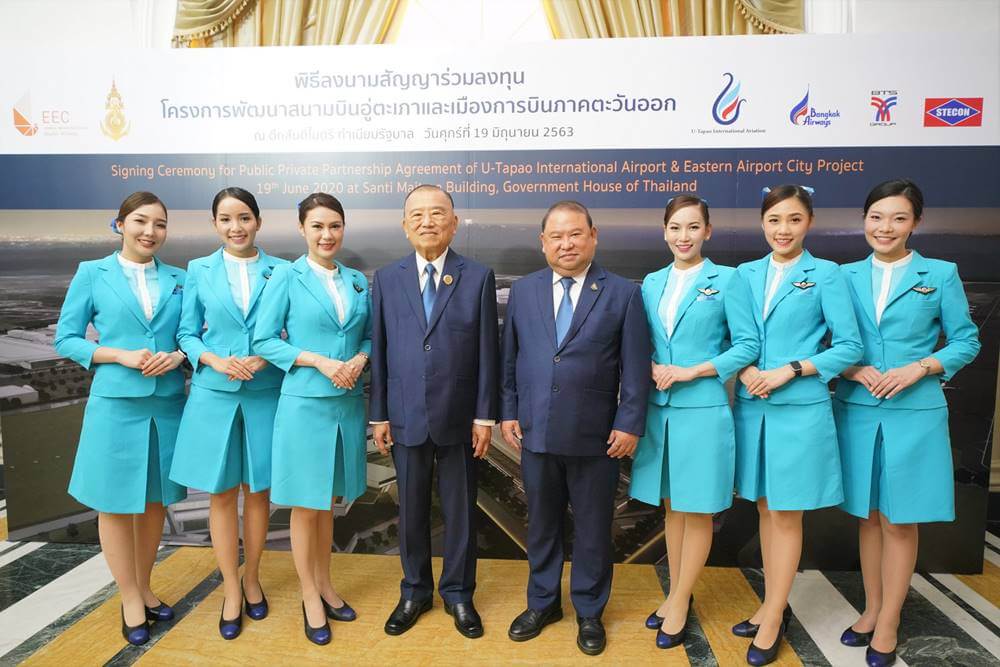
The origins of Bangkok Airways can be traced all the way back to 1968, making it the oldest privately held airline in Thailand. It offers flights inside Thailand to practically all popular tourist locations, as …
Vistara Cabin Crew Requirements and Qualifications
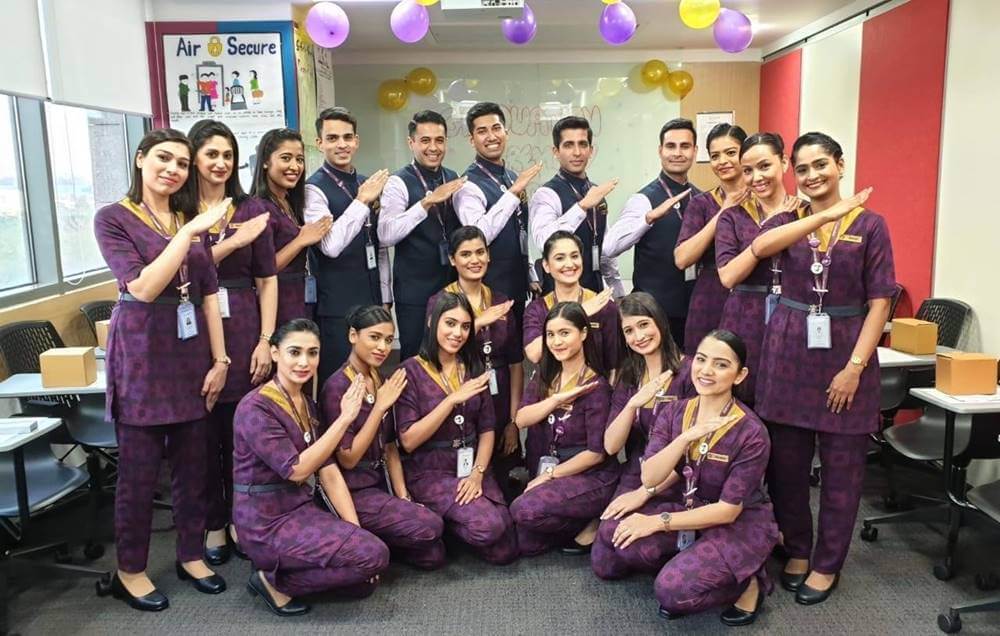
Vistara is a joint venture between Tata Sons Private Limited and Singapore Airlines Limited (SIA), TATA SIA Airlines Limited is the name under which the company is registered, so don’t get confused when applying for …
HiFly Cabin Crew Requirements and Qualifications
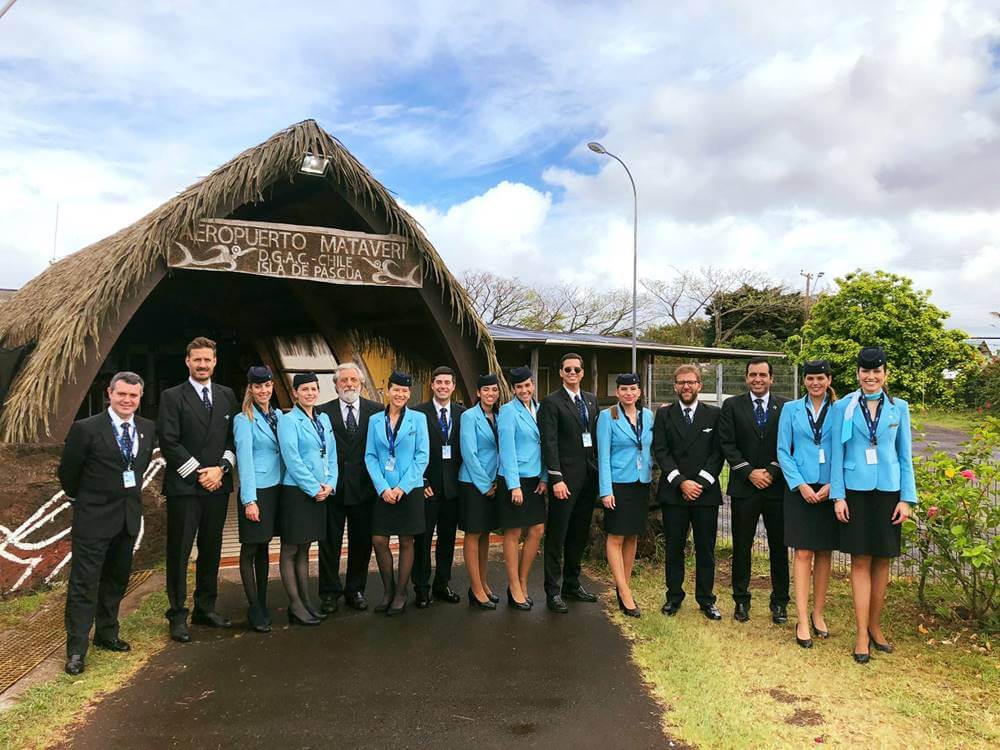
The HiFly charter airline is operated by two affiliated airlines, one in Portugal and one in Malta. When airlines require additional capacity to meet their short/medium term or seasonal needs, HiFly is the go-to charter …
Royal Air Maroc Cabin Crew Requirements and Qualifications
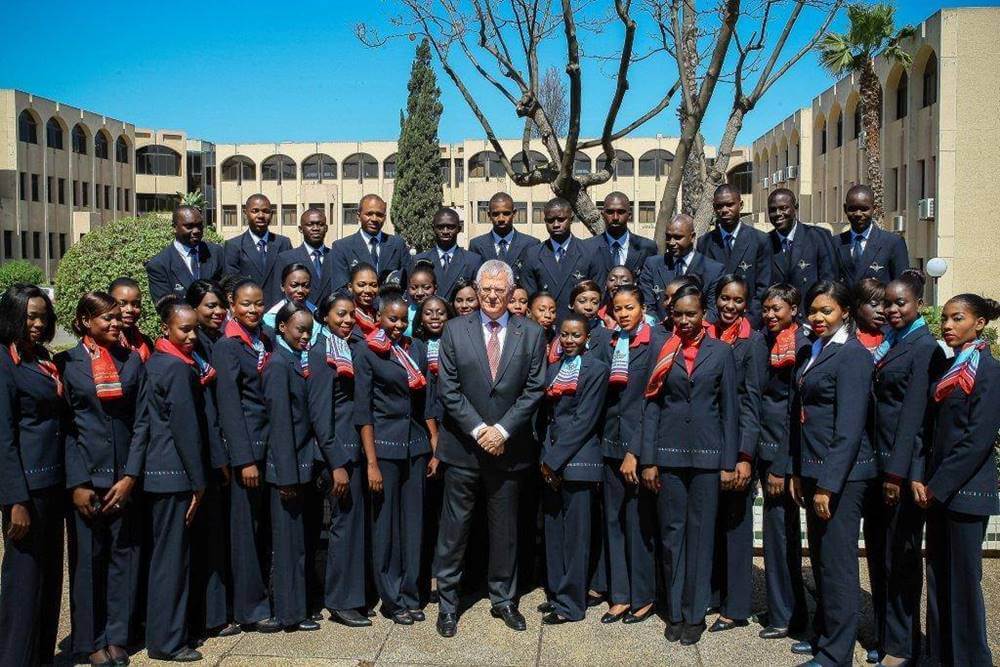
Royal Air Maroc has been a leading airline in Africa since its inception (in 1957). It serves more than 105 destinations worldwide and transports nearly 8 million passengers per year. Since 2015, Royal Air Maroc …
China Southern Airlines Flight Attendant Requirements and Qualifications

China Southern Airlines Co., Ltd. is the largest airline in China headquartered in Guangzhou. It has the most developed route network and the highest annual passenger volume. They have 7 holding public air transport subsidiaries …
EVA Air Flight Attendant Requirements and Qualifications
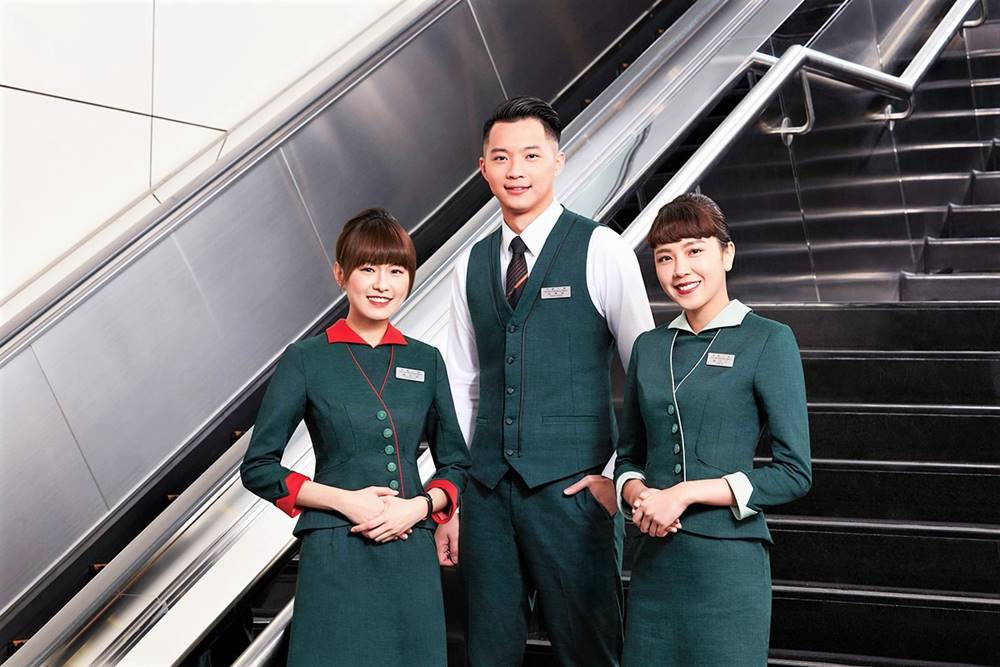
Comfort and luxury are just two sets of values that EVA Air prioritizes. It has always been the goal of the airline in ensuring passenger comfortability and satisfaction. By living up to this kind of …
Fiji Airways Flight Attendant Requirements and Qualifications
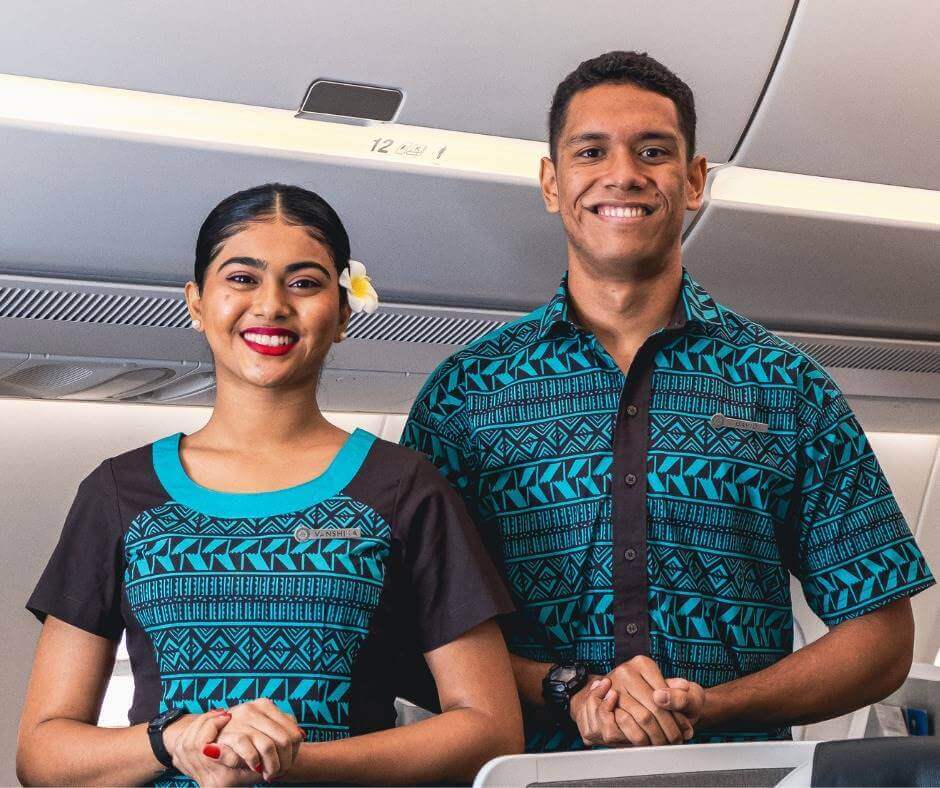
Fiji Airways, formerly known as Air Pacific, is the Republic of Fiji’s national carrier. This airline is primarily owned by Fiji’s National Provident Fund. It is current headquartered at Nadi International Airport, and it operates …
TAP Air Portugal Cabin Crew Requirements and Qualifications
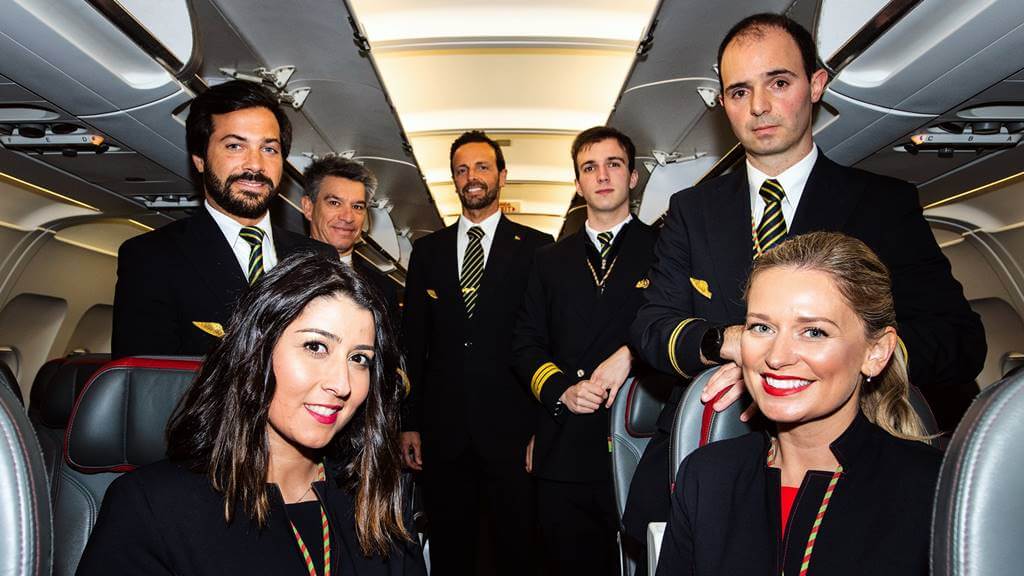
TAP Air Portugal is known as the safest European airline and the fifth safest worldwide by The Airline Ratings. The World Travel Awards regarded TAP Air Portugal as “Europe’s Leading Airline bound to Africa” and …

- Salary Breakdown
- Career Paths
- Skill Development
- Industry Trends

Mastering Flight Attendant Skill Development: Your Key to Success

Pursuing a successful career as a flight attendant requires a combination of skills and preparation, including an understanding of the training options and requirements. It is important to know what it takes to stand out in this competitive industry, where airlines prioritize candidates with high school or bachelor’s degrees and relevant work experience .
Maintaining a good physique and appearance is crucial as well, as flight attendants are the face of the airline. Including professional photos in your resume can make a lasting impression on recruiters, showcasing your commitment to professionalism and attention to detail .
But it doesn’t stop there. In order to secure a position as a flight attendant, mastering successful interview skills is essential. Dressing appropriately and exuding confidence can greatly increase your chances of being hired.
Once you have been selected for the role, completing the necessary training program and obtaining the required certifications is crucial. This ensures that you are equipped with the necessary knowledge and skills to excel in safety and customer service.
As a flight attendant, it is important to possess a range of essential skills that contribute to a seamless travel experience. These include maintaining a positive attitude , effective communication, being customer-oriented , and cultural awareness . Adaptability , physical stamina , stress management , attention to detail , leadership , and problem-solving skills are also crucial in this dynamic role.
Additionally, there are other skills and competencies that can further enhance your success as a flight attendant. Time management , discretion , sales ability , numerical competence , and basic swimming skills are valuable attributes that can set you apart from the competition.
- Flight attendant skill development is essential for a successful career in the industry.
- Having a high school or bachelor’s degree and relevant work experience can increase your chances of being hired.
- Creating an impressive resume and showcasing professional photos can make you stand out to recruiters.
- Dressing appropriately and exuding confidence are crucial during the interview process.
- Completing the necessary training and obtaining certifications is necessary for competence in safety and customer service.
Table of Contents
The Importance of Education and Work Experience
Education and work experience play a crucial role in the journey to become a flight attendant, with airlines often seeking candidates with high school or bachelor’s degrees and relevant work experience . Whether you have just finished high school or already have a degree, pursuing a career as a flight attendant requires a solid educational background to demonstrate your commitment and ability to handle the responsibilities of the job.
Having a high school degree is typically the minimum requirement for entry-level flight attendant positions. However, many airlines prefer candidates with a bachelor’s degree , as it showcases a higher level of education and dedication. A degree in a related field such as hospitality, tourism, or communication can be particularly advantageous, as it provides a foundation of knowledge and skills that can be applied to the role.
Relevant work experience is also highly valued by airlines. This can include customer service roles, hospitality positions, or any job that allows you to develop skills such as communication, problem-solving, and teamwork. Prior experience in the travel or airline industry is particularly advantageous, as it demonstrates familiarity with the industry and an understanding of the expectations of the role.
To enhance your chances of standing out from other candidates, consider obtaining certifications or completing specialized training programs in areas such as customer service, safety procedures, or first aid. These additional qualifications can demonstrate your commitment to professional development and can give you an edge during the selection process.
“Education is not the filling of a pail, but the lighting of a fire.” – William Butler Yeats
Continuing Education and Professional Development
Once you have secured a position as a flight attendant, the learning journey does not end. Airlines often provide ongoing training programs to enhance your skills and keep you up-to-date with industry regulations and best practices. Taking advantage of these opportunities can not only advance your career but also ensure that you continue to deliver exceptional service to passengers.
Additionally, attending industry conferences or joining professional organizations can offer networking opportunities and access to resources that can further enhance your knowledge and career prospects.
Demonstrating Your Education and Work Experience
When applying for a flight attendant position, it is important to showcase your education and work experience in a clear and concise manner. Your resume should highlight your academic achievements, relevant coursework, and any honors or awards you have received. Include details about your work experience, focusing on the skills and responsibilities that are directly applicable to the role of a flight attendant.
Be sure to attach professional photos to your resume to provide a visual representation of your appearance and grooming. This helps recruiters get a sense of your personal presentation, which is a crucial aspect of the role of a flight attendant. It is also essential to create a stunning resume that effectively communicates your skills and accomplishments, as this is often the first impression hiring managers have of you as a potential candidate.
By emphasizing the importance of education and work experience, you can position yourself as a strong candidate in the competitive field of flight attendant recruitment. Taking the time to develop your knowledge, skills, and qualifications will not only help you secure a position but also pave the way for a successful and fulfilling career in the aviation industry.

Nailing the interview is essential for aspiring flight attendants, and this section delves into the key aspects of successful interview skills , from dressing appropriately to exuding confidence . When it comes to dressing for the interview, it’s important to present yourself professionally. Opt for a well-fitted suit or business attire that reflects the airline’s image. Pay attention to small details, such as neatly groomed hair, minimal jewelry, and polished shoes.
Confidence is another crucial element in acing the interview. Maintain good eye contact, offer a firm handshake, and speak clearly and confidently. Prepare for common interview questions and practice your responses beforehand. Showcase your passion for customer service, teamwork, and problem-solving skills .
It’s also helpful to research the airline you’re applying to. Familiarize yourself with their values, mission, and recent news. Demonstrate your interest and enthusiasm during the interview by asking thoughtful questions about the company. Highlight any relevant experiences, such as previous customer service roles or language skills, that align with the airline’s needs.
Preparing for Success
- Research the airline and familiarize yourself with their values and mission.
- Dress professionally, paying attention to small details.
- Show confidence through good eye contact, a firm handshake, and clear communication.
- Practice common interview questions and prepare thoughtful responses.
- Highlight relevant experiences and skills that align with the airline’s needs.

“Coming prepared, both in terms of your appearance and your knowledge of the airline, can greatly increase your chances of success in the interview. Confidence is key, so be sure to practice and showcase your skills and experiences that align with the airline’s requirements. Good luck!”
Training and Certification Programs
Once hired, flight attendants must undergo rigorous training programs and obtain the necessary certifications to ensure they are equipped with the skills required for safety and excellent customer service. Airlines place a high priority on training their flight attendants to handle any situation that may arise during a flight, including emergencies and medical incidents. The training programs cover a wide range of topics, from first aid and CPR to aircraft evacuation procedures and inflight service protocols.
Training programs are typically conducted by airline-approved training facilities or directly by the airlines themselves. These programs consist of a combination of classroom instruction, hands-on practical exercises, and simulations. Flight attendants are trained in areas such as aviation regulations, emergency procedures, self-defense, and customer service. They also learn to operate emergency equipment, including evacuation slides and life rafts, as well as how to handle onboard fires, turbulence, and other potential hazards.
Upon successful completion of the training program , flight attendants receive the necessary certifications . These certifications verify that they have acquired the skills and knowledge required to perform their duties safely and effectively. Certifications may include Emergency Procedures, CPR and First Aid, Aviation Security, and Dangerous Goods Handling. These certifications must be renewed periodically to ensure that flight attendants stay up-to-date with the latest industry standards and regulations.
By completing these training programs and obtaining the necessary certifications , flight attendants demonstrate their commitment to providing a safe and comfortable environment for passengers. These qualifications not only enhance their professional development but also provide reassurance to passengers who rely on them for their safety and well-being during air travel.

Essential Skills for Success
Mastering the essential skills is crucial for flight attendants to excel in their role, from maintaining a positive attitude and effective communication to being customer-oriented and culturally aware. Flight attendants are the face of the airline, representing the company’s values and providing exceptional service to passengers. Therefore, having excellent interpersonal skills is paramount. Effective communication involves clear verbal and non-verbal communication, active listening, and the ability to adapt to different communication styles.
Being customer-oriented is another essential skill for flight attendants. They must be able to anticipate and meet the needs of passengers, ensuring a comfortable and enjoyable travel experience. This requires empathy, patience, and the ability to handle difficult situations with grace and professionalism. Cultural awareness is also important, as flight attendants interact with people from various backgrounds and cultures. Understanding and respecting cultural differences contributes to creating a welcoming and inclusive environment onboard.
Flight attendants often face demanding schedules and long hours, so physical stamina and stress management are crucial. The job requires frequent standing, walking, and lifting heavy objects. Flight attendants must also be able to handle stressful situations, such as medical emergencies or unruly passengers, while maintaining composure and ensuring the safety and well-being of everyone onboard.
Attention to detail is essential for the safety and comfort of passengers. Flight attendants must diligently follow safety procedures, ensure proper cabin preparation, and promptly address any issues that may arise during the flight. Leadership and problem-solving skills are also valuable, as flight attendants may need to make quick decisions or take charge in emergency situations.
Mastering these skills and being prepared for the challenges of the profession can lead to a successful career as a flight attendant. It is a dynamic role that offers opportunities for personal growth and the chance to make a positive impact on passengers’ travel experiences.
Table: Essential Skills for Flight Attendants
Additional skills and competencies.
In addition to the essential skills, flight attendants can benefit from additional skills such as effective time management , discretion , sales ability , numerical competence , and even basic swimming skills , enhancing their overall performance.
Effective time management is crucial for flight attendants as they need to juggle multiple tasks and ensure smooth operations during flights. Being able to prioritize and allocate time efficiently can help maximize productivity and deliver exceptional service to passengers.
Discretion is another important skill that flight attendants should possess. They often encounter sensitive situations onboard and must exercise discretion when dealing with them. This includes handling passenger requests, maintaining confidentiality, and ensuring the safety and comfort of everyone on board.
Sales ability is also valuable for flight attendants. Airlines often offer products or services for sale during flights, such as duty-free items or upgraded seating options. Having the ability to promote and sell these offerings can contribute to increased revenue and customer satisfaction.
Numerical competence is essential for flight attendants when it comes to tasks such as handling cash transactions, managing inventory, or calculating flight-related data. Being proficient in basic numerical operations can ensure accuracy and efficiency in these aspects of the job.
Basic swimming skills may not seem directly related to the role of a flight attendant, but they can be invaluable in emergency situations. In the rare event of a water landing or an evacuation involving water, knowing how to swim can save lives and provide a sense of security to passengers.
By honing these additional skills and competencies, flight attendants can showcase their versatility, professionalism, and dedication to their role. This, in turn, can contribute to their overall success and open doors to new opportunities within the aviation industry.
What are the requirements to become a flight attendant?
Most airlines prefer candidates with high school or bachelor’s degrees, as well as relevant work experience.
How important is maintaining a good physique and appearance?
Maintaining a good physique and appearance is important in the flight attendant profession.
Should I attach professional photos to my resume?
Yes, attaching professional photos to your resume can help you stand out to recruiters.
How can I create an impressive resume?
Creating a stunning resume that highlights your skills and achievements is crucial for getting noticed by recruiters.
What skills are important for a successful interview?
Dressing appropriately and exuding confidence are important skills for a successful interview as a flight attendant.
What training and certifications are required?
Completing the training program and obtaining the necessary certifications is necessary for flight attendants.
What are the essential skills for success as a flight attendant?
Essential skills for success as a flight attendant include maintaining a positive attitude , having good communication and teamwork skills, and being customer-oriented. Other important qualities include cultural awareness, adaptability , physical stamina, stress management, attention to detail, leadership, and problem-solving skills.
Are there any additional skills and competencies that can enhance my success as a flight attendant?
Yes, additional skills and competencies that can further enhance success as a flight attendant include time management, discretion, sales ability, numerical competence, and basic swimming skills.

Lily, with her degree in Communications from UCLA, is the voice behind ProCareer’s engaging content. She also fosters community spirit, ensuring every member feels heard and valued.
Recent Posts
Power & connection – lineman skill training, exploring the latest lineman industry trends in the us.
- Discovering the Lineman Career Path: A Journey Worth Taking
- Network Engineer Salary in the US in 2023
- Engineering Tomorrow – General Engineer Skill Enhancement
Recent Comments
At ProCareer, we recognize the challenges of navigating the ever-evolving professional landscape. Our mission? To empower young professionals with accurate, up-to-date insights—whether you're weighing salary expectations, exploring potential career trajectories, or simply seeking the latest industry trends.
Our dedicated team, comprised of industry experts and passionate researchers, curates resources that illuminate your path. Dive deep into our offerings and let ProCareer be your guiding star in the vast galaxy of career opportunities. Your success story starts here.
PRO Career Pages
- Terms Of Service
- Do Not Sell
- Cookie Policy

Welcome to Power & Connection – Lineman Skill Training,…

The lineman industry in the United States is thriving,…
+1 800 234 5678
https://procareer.net
CAREER PATHWAYS
Looking for the perfect job? Explore our Career Guides!
How to Become a Flight Attendant
By Ajoke Aminu
Published: February 27, 2024
Do you want to get paid while traveling the world and experiencing different cultures? Lucky for you, that’s pretty much a flight attendant job description! But before you can start jet-setting across the globe, you’ll need to learn essential flight attendant skills.
Stay with us, as we explore the different flight attendant requirements, their average salary, and outline the general steps to help you become a flight attendant ASAP!
Career Summary
Flight attendant salary.

Flight attendant’s job description goes far beyond just serving drinks and snacks, and it reflects in their income. They act as safety and service professionals in the sky, responsible for passenger safety, medical emergencies, and ensuring a comfortable flight experience. In essence, here is the flight attendant salary trajectory :
- Entry Salary (US$51k)
- Median Salary (US$59k)
- Executive Salary (US$76k)
Therefore, flight attendant salaries can be considered as mid-range income salaries compared to the national average.
What does a Flight Attendant do?
Flight attendants ensure passenger safety and comfort during flights by conducting pre-flight safety briefings, assisting with boarding and deplaning, providing in-flight services such as serving meals and beverages, addressing passenger inquiries, and handling emergency situations.
Flight Attendant Career Progression
- Entry-Level/Junior Flight Attendant: Responsible for providing onboard services and ensuring passenger safety.
- Senior Flight Attendant: Takes on additional responsibilities, such as mentoring new flight attendants, leading cabin crew teams, and handling more complex situations.
- In-Flight Supervisor: Oversees the overall in-flight operations, manages cabin crew performance, and ensures compliance with airline policies and procedures.
- Purser/Lead Flight Attendant: Serves as the primary point of contact between the cabin crew and the flight deck, responsible for coordinating and managing the entire cabin service.
- Manager/Director of In-Flight Services: Manages and supervises the entire in-flight department, including recruitment, training, scheduling, and ensuring high service standards.

Pros and Cons of Working as a Flight Attendant
- Opportunities to travel and explore different destinations.
- Meeting people from diverse backgrounds and cultures.
- Competitive travel benefits and discounts.
- Enhanced customer service and interpersonal skills.
- The dynamic and ever-changing work environment.
- Irregular work schedules and long hours.
- Frequent time away from home and family.
- Dealing with demanding passengers and challenging situations.
- Jet lag and the physical toll of working in a pressurized cabin.
- Limited control over personal routines and schedules.
Key Skills to Have as a Flight Attendant
- Excellent communication and interpersonal skills.
- Customer service orientation.
- Problem-solving abilities.
- Adaptability and flexibility.
- Emergency response and first aid knowledge.
Popular Flight Attendant Specialties
- International Flight Attendant
- Corporate/Private Jet Flight Attendant
- VIP/First Class Flight Attendant
- Language-Specific Flight Attendant
- In-Flight Safety Instructor/Trainer
How to become a Flight Attendant

As a flight attendant, you have the opportunity to explore different destinations, interact with diverse passengers, and ensure their safety and comfort during flights. Also, the flight attendant salary packs quite the punch, so gear yourself up for a competitive selection process. Hence, you must study the steps needed to take to increase your chances of success. In this guide, we will outline the general steps to help you embark on your journey towards a career as a flight attendant.
Get The Right Flight Attendant Education: High School vs. College
When considering a career as a flight attendant, one common question is whether a college degree is necessary. While the minimum flight attendant requirements for education are typically a high school diploma and/or GED , pursuing a college degree can have its advantages, such as enhancing your career prospects and providing a competitive edge in the industry. However, it’s important to note that many successful flight attendants have built their careers without a college degree.
The flight attendant job description primarily focuses on customer service, safety procedures, adaptability, and emergency protocols. These skills can be acquired through comprehensive training programs provided by airlines . Also, if you are already working in a customer service role and have the required skills and experience, you may be able to get a job as a flight attendant without a degree.
Ultimately, the decision to pursue a college degree as a flight attendant is a personal one. Consider your long-term goals, financial resources, and the specific requirements of the airlines you wish to work for. Research the hiring preferences of different airlines and weigh the potential benefits against the investment of time and money required for a college education.
Essential benefits of a college degree for a flight attendant include:
- Expanded Knowledge and Skills: College education can broaden your knowledge base and develop critical thinking, communication, and problem-solving skills. These skills can be valuable in handling challenging situations, interacting with diverse passengers, and providing exceptional service.
- Enhanced Professionalism: A college degree demonstrates a commitment to education and a level of professionalism that may be appealing to airlines during the hiring process. It showcases your ability to complete long-term goals, manage responsibilities, and thrive in an academic environment.
- Increased Opportunities for Advancement: While a degree is not a guarantee for career advancement, it can open doors to opportunities beyond the role of a flight attendant. Airlines often have various departments and positions that require higher education qualifications, such as management, training, or customer experience roles.
- Competitive Edge in the Job Market: The aviation industry is highly competitive, and having a college degree can set you apart from other candidates, providing better opportunities and a flight attendant salary. It showcases your dedication, commitment, and willingness to invest in your personal and professional development.
Choosing the Right Degree for a Flight Attendant Career | Duration & Financial Estimate
Regrettably, the flight attendant requirements do not include a specific major that will land you a job. Nevertheless, certain fields of study can provide a solid foundation and equip you with valuable skills that are relevant to the role of a flight attendant. It’s important to note that while these degree programs can provide valuable knowledge and skills, they are not prerequisites for becoming a flight attendant.
Airlines typically prioritize qualities like exceptional customer service, strong communication skills, and a professional demeanor. Therefore, even if your degree doesn’t directly align with the aviation industry, you can still pursue a career as a flight attendant by focusing on acquiring relevant experience, participating in training programs, and demonstrating the desired qualities during the hiring process. Usually, it costs between US$3,500 to US$25,000 to study to become a flight attendant.
Here are some degree alternatives for aspiring flight attendants, along with estimated timeframes for completion:
- Hospitality and Tourism: Degrees in hospitality or tourism management can provide a comprehensive understanding of the service industry, customer relations, and the importance of delivering exceptional experiences to travelers. These degrees often cover topics such as guest services, event planning, and cultural awareness, which are highly relevant to the role of a flight attendant. Typically, a bachelor’s degree in hospitality or tourism takes four years to complete.
- Public Relations and Communications: A degree in public relations or communications can enhance your interpersonal and communication skills, which are essential for effective interaction with passengers. These programs often focus on developing strong verbal and written communication abilities, crisis management, and interpersonal dynamics, all of which are valuable in a customer-facing role. A bachelor’s degree in public relations or communications usually takes four years to complete.
- Business: A degree in business can provide a broad range of skills applicable to various professional settings, including the aviation industry. Business programs typically cover areas such as management, marketing, accounting, and organizational behavior, which can contribute to your understanding of business operations and help you navigate the administrative aspects of the airline industry. A bachelor’s degree in business typically takes four years to complete.
- Psychology and Sociology: Degrees in psychology or sociology can offer insights into human behavior, social dynamics, and cultural diversity. Understanding different personality types, communication styles, and cultural sensitivities can be invaluable for providing exceptional customer service and managing interactions with passengers from various backgrounds. Both bachelor’s and master’s degrees in psychology or sociology usually take four to six years to complete, depending on the level of study.
- Education: A degree in education can equip you with skills in instruction, training, and curriculum development. These skills can be valuable if you are interested in pursuing roles in flight attendant training or crew resource management, where you may be involved in educating and mentoring new hires. A bachelor’s degree in education usually takes four years to complete.
Build Flight Attendant Skills Through Internships & Resources
Before anything, are you 18 or above? One of the first flight attendant requirements is your age, so you must be 18 years and above (preferably 21 in some cases). If you are, one of the other basic flight attendant requirements is to be able to speak the English language fluently.
Whether you’re just starting or looking to advance your career, building your flight attendant skills is key to achieving success. These skills enhance your daily job duties, and can also positively impact your flight attendant salary and lead to opportunities for career advancement.
Essential Flight Attendant Skills
- Safety Procedures: You’ll learn extensive safety protocols and procedures, including how to handle emergency situations such as evacuations, turbulence, and medical emergencies.
- Crisis Management: Flight attendants are trained to remain calm and composed in high-stress situations, making quick decisions and taking appropriate actions during emergencies.
- Customer Service: Excellent customer service skills are vital for addressing passengers’ needs, providing assistance, and creating a positive in-flight experience.
- Conflict Resolution: Flight attendants learn to manage conflicts among passengers diplomatically and professionally, ensuring a harmonious cabin environment.
- First Aid: Basic first-aid training is provided to handle minor medical incidents and injuries on board until professional medical assistance is available
- Language Skills: Depending on the airline, you may receive language training to communicate with passengers from diverse backgrounds.
- Cultural Sensitivity: Flight attendants are taught to respect and accommodate passengers’ cultural differences and preferences.
- In-Flight Services: You’ll learn how to serve meals and beverages, set up the cabin for different phases of the flight, and maintain cleanliness and orderliness.
- Problem-Solving, Time management, Flexibility, Teamwork & Communication: Flight attendants possess a versatile skill set that includes problem-solving abilities to address unexpected challenges, adept time management for on-time flights, flexibility to adapt to changing circumstances, strong teamwork skills for passenger safety, and effective communication for conveying crucial information to passengers and fellow crew members.
- Professional Appearance: Maintaining a polished appearance and adhering to grooming standards is important for representing the airline and projecting a professional image.
Resources to Master Flight Attendant Skills
If you’re looking to learn flight attendant skills, there are several resources available that can help you acquire the necessary knowledge and develop the required skills.
Here are some options to consider:
- Flight Attendant Training Programs: Many airlines offer their own flight attendant training programs , which are designed to provide comprehensive training specific to their operations, safety procedures, customer service standards, and regulatory requirements. These programs typically cover a wide range of topics, including emergency procedures, passenger handling, first aid, service etiquette, and aircraft-specific training. If you are hired by an airline, they will usually provide you with the necessary training.
- Online Courses: There are online courses and training programs available that specifically focus on flight attendant skills. These courses can cover topics such as customer service, safety and emergency procedures, inflight service, cultural awareness, and aviation regulations. These courses may be self-paced or instructor-led and can provide you with a solid foundation of knowledge to prepare for a career as a flight attendant.
- Books and Manuals: There are various books and manuals available that provide insights into the responsibilities, duties, and skills required of flight attendants. These resources may cover a range of topics, including safety procedures, passenger management, service techniques, and industry-specific knowledge. Some recommended titles include “ The Complete Flight Attendant Interview Workbook ” and “ The Essential Guide to Becoming a Flight Attendant “.
- Professional Associations: Joining professional associations, such as the Association of Flight Attendants (AFA), can provide access to resources, training materials, and networking opportunities. These associations often offer workshops, conferences, and other educational events that can enhance your knowledge and skills as a flight attendant.
- Airlines’ Career Pages: Many airlines have dedicated career pages on their websites where they post job openings and provide information about their recruitment processes and benefits. Check the websites of specific airlines you’re interested in.
Here are two more useful web resources for aspiring and current flight attendants:
- Federal Aviation Administration : The FAA’s website offers regulations, guidelines, and safety information relevant to flight attendants and the aviation industry.
- Cabin Crew Wings : A comprehensive resource for aspiring cabin crew members, offering information on training, recruitment, and career development in the aviation industry.
Flight Attendant Internships to Boost Your Skills & Resume
With hands-on experience at the core of internships, they can be a valuable way to build your flight attendant skills. While internships specifically tailored to flight attendants may not be as common as in other fields, there are still opportunities available that can provide valuable insights into the industry and enhance your skills.
Here are some internship opportunities to consider:
- Airline Internship Programs: Some airlines offer internship programs that provide a comprehensive inside look into their operations, including the flight attendant department. These programs may involve rotations through different departments, including customer service, inflight services, and safety procedures. Interns may have the opportunity to shadow and assist flight attendants, observe inflight operations, and gain exposure to various aspects of the job.
- Aviation and Travel Companies: Interning at aviation or travel companies can also provide valuable experience related to the flight attendant profession. These companies may include airlines, travel agencies, tour operators, or aviation service providers. While the focus may not be solely on flight attendant duties, you can gain insights into the broader aviation industry, customer service skills, and travel operations.
- Hospitality and Tourism Industry: Since flight attendants often interact with passengers in a service-oriented capacity, internships in the hospitality and tourism industry can be beneficial. Consider internships at hotels, resorts, event management companies, or tourism boards. These opportunities can provide exposure to customer service, guest relations, event planning, and cultural awareness, which are all relevant skills for flight attendants.
- Flight Attendant Schools: Some flight attendant schools or training centers may offer internship opportunities as part of their curriculum. These internships can provide students with practical experience and exposure to the daily duties of flight attendants.
- Safety and Emergency Response Training: While not a traditional internship, pursuing safety and emergency response training programs can enhance your qualifications as a flight attendant. Look for internships or training programs offered by organizations that specialize in aviation safety, emergency response, or first aid. These programs can provide hands-on experience in handling emergency situations, familiarization with safety equipment, and understanding regulatory requirements.
- Airport Operations: Interning at an airport can also be beneficial for flight attendants. Positions like airport customer service or ground operations can help interns gain familiarity with airport procedures, passenger interactions, and the overall aviation environment.
Get the Necessary Training and Certifications
As mentioned earlier, there are a number of flight attendant courses and certifications that can boost your portfolio. These courses can be a good way to prepare for a flight attendant training program, but they cannot replace the hands-on training that you will receive in a traditional program .
To become a flight attendant, you should contact airlines directly to learn about their training requirements. Most airlines offer their own training programs, and these programs typically last for a few weeks or months. In training, you will learn about the airline’s safety and security procedures, customer service standards, and emergency response protocols. You will also have the opportunity to practice your skills in a simulated environment.
Once you have completed your training, you will need to pass a certification exam. This exam is administered by the Federal Aviation Administration ( FAA ). Once you have passed the exam, you will be certified as a flight attendant and you will be eligible to apply for jobs with airlines.
Apply for Flight Attendant Jobs
Now that you understand the flight attendant requirements, it’s time for the next phase. The flight attendant job description is the first thing you must understand before applying for jobs.
Here are some additional tips to apply for flight attendant jobs:
- Research airlines: Not all airlines are created equal. Some airlines are known for having a better work-life balance than others. Some airlines offer more competitive pay and benefits. Do your research to find airlines that are a good fit for you.
- Tailor your resume and cover letter to each job you apply for: Highlight your skills and experience that are relevant to the flight attendant position. Be sure to mention any customer service experience you have, as well as any experience working with people.
- Prepare for the interview process: The flight attendant interview process can be competitive. Be prepared to answer questions about your customer service skills, your experience working with people, and your knowledge of the airline industry. You may also be asked to participate in a role-playing exercise.
- Follow up after the interview: Send a thank-you note to the interviewer within 24 hours of the interview. This shows that you are interested in the position and that you are professional.
- Learn a foreign language: While not required, speaking a foreign language fluently can be an asset for flight attendants. Airlines that operate international flights often prefer to hire flight attendants who speak multiple languages.
- Get in shape: Flight attendants must be able to lift and carry heavy objects, and they must be able to move around quickly and efficiently in a cramped space. Staying in shape will help you perform your job duties safely and effectively.
Suitable Job Opportunities & Companies for a Flight Attendant
Let’s explore some common career paths and types of companies that hire flight attendants:
- Commercial Airlines: The most traditional path for flight attendants is working for commercial airlines. This includes both domestic and international carriers.
- Charter Airlines: Charter airlines provide on-demand flight services, often for specific groups, such as tour groups, sports teams, or corporate clients. Flight attendants on charter airlines may work on a variety of routes.
- Private Jet Companies: Some flight attendants work on private jets, providing personalized service to high-net-worth individuals, celebrities, and corporate executives.
- Corporate Aviation: Flight attendants can find opportunities in corporate aviation, serving on corporate-owned aircraft. They ensure the comfort of executives and employees during business travel.
- Flight Attendant Training Schools: Some flight attendants transition into careers as instructors at flight attendant training schools. They train new flight attendants in safety procedures and customer service.
- Customer Service and Hospitality: Flight attendants develop strong customer service and hospitality skills, making them well-suited for roles in the broader hospitality and customer service industries.
- Travel and Tourism: Flight attendants have a passion for travel, which can lead to opportunities in the travel and tourism sector, such as travel agency positions or tour guiding.
- Aviation Management: With experience, flight attendants may pursue roles in aviation management, overseeing flight operations, cabin crew, or other aspects of airline operations.
Balancing Work & Life as a Flight Attendant
It may be challenging for flight attendants to balance work and personal time but that’s not to say it is impossible. Flight attendants typically work long hours and irregular shifts. They may work overnight flights, early morning flights, and late night flights. They may also have to work on holidays and weekends.
Flight attendants spend a lot of time away from home. They may be away for several days at a time, and they may have to work in different cities and countries.
However, flight attendants also have a lot of free time. They may have several days off in a row, and they may have the opportunity to travel to different parts of the world. They also might have some flexibility in their schedules. They might choose which flights they want to work and which days they want to be off. With careful planning and effort, it is possible to maintain a good work-life balance as a flight attendant.
Here are some tips for maintaining a good work-life balance as a flight attendant:
- Plan Ahead: Try to plan your schedule in advance so that you can know when you will be working and when you will have free time.
- Set Boundaries: It is important to set boundaries between your work life and your personal life. When you are at work, focus on your job duties. When you are at home, focus on your personal life.
- Take Care of Yourself: It is important to take care of yourself physically and mentally. Make sure to eat healthy foods, get enough exercise, and get enough sleep.
- Stay Connected with Loved Ones: It is important to stay connected with your loved ones when you are away from home. Call, text, or email them regularly.
What’s the Career Outlook for Flight Attendants?
Various factors contribute to the increasing demand for flight attendants. As air travel continues to expand, airlines are expanding their fleets and routes, leading to an increased need for cabin crew members. Additionally, as the global economy improves, more people are traveling for business and leisure purposes, resulting in higher passenger volumes and the need for additional flight attendants to ensure the safety and comfort of passengers.
The job outlook for flight attendants is very positive, with employment projected to grow 11% from 2022 to 2032 . This growth rate is significantly faster than the average for all occupations, indicating a strong demand for flight attendants in the coming years with around 16,600 job openings for flight attendants are estimated each year.
It’s worth noting that while the overall industry outlook is positive, competition for flight attendant positions can be fierce. Airlines often receive a high number of applications for a limited number of openings. Therefore, it’s important for aspiring flight attendants to stand out by highlighting their relevant skills, experiences, and qualifications during the application process.
Should I become a Flight Attendant?
Before making a decision on whether to become a flight attendant or not, it is important to consider various factors that play a crucial role in determining your success in this career. It is a personal choice that requires careful consideration. From the flight attendant salary to the requirements necessary to qualify for this job and the job description, evaluating these factors can help in making an informed decision.
However, it is also important to take a personal inventory of your interests and skills, as well as your long-term goals. Also, consider your passion for travel, working in a dynamic and multicultural environment, and providing exceptional customer service. Reflect on your ability to handle the demands of the job, such as irregular work schedules, long hours, and dealing with various challenges that can arise during flights.
Furthermore, assess your interpersonal skills, communication abilities, adaptability, problem-solving capabilities, and teamwork aptitude. These are essential qualities for success as a flight attendant. In the end, becoming a flight attendant can be a rewarding and exciting career path, but it is ultimately up to you to evaluate these key points and make a decision that aligns with your individual aspirations.
Careers Related to Flight Attendant
- Customer Service Representative
- Travel Agent

About the Author
Read more articles by Ajoke Aminu
Continue Reading
What is a UX Designer and How to Become One
What is a machine learning engineer and how to become one, what is a ui designer and how to become one, what is an seo specialist and how to become one, what is a recruiter and how to become one, what is a project manager and how to become one, what is a front-end developer and how to become one, what is a product manager and how to become one.

IMAGES
VIDEO
COMMENTS
Flight Attendant: The most common career path for cabin crew graduates is to become a flight attendant, responsible for ensuring the safety and comfort of passengers during flights. 8.2. Senior Flight Attendant: With experience, flight attendants can advance to senior positions, where they may take on supervisory roles and mentor newer crew ...
Blog. Nov. 18, 2024. AI prompt examples for creating impactful AI presentations; Nov. 15, 2024. Learn from famous public speakers: inspiration from top speakers
Sep 27, 2022 · A strong personal presentation is necessary to work as a flight attendant. Language abilities: Although it is not a prerequisite, the ability to speak languages other than English is unquestionably a benefit that can aid a flight attendant in finding employment, as there is greater demand and potential for bilingual or multilingual flight ...
Flight Attendant requirements for APPEARANCE – RELOCATION. Flight attendants must dress according to the requirements set by the airline. The Travel Academy provides you the opportunity to learn how to look and talk like a flight attendant. Looking and talking authentically like a flight attendant, makes it easy for the airline to hire you.
Mar 3, 2024 · Hi Coral so you really think I have a chance of getting my dream being real of becoming a flight attendant even though English is my second language and most airlines that I have read the requirements said that writing is a requirement and that’s where I have difficulty of spelling words😞.
Apr 20, 2023 · Flight attendants represent the airline’s image and are often the first point of contact for passengers, so immaculate personal presentation and impeccable grooming are essential. Recruiters pay close attention to details, and it only takes a few seconds for them to form an opinion based on your appearance.
Becoming a flight attendant does have certain age and experience requirements. Most airlines require applicants to be at least 18 years old, and some even have a maximum age limit of 35 or 40. As for experience, most airlines require applicants to have at least a high school diploma or equivalent, as well as a previous customer service experience .
Becoming a flight attendant is an exciting and challenging career choice, which requires specific qualifications and personal traits. Flight attendants must meet the minimum age requirement of 18 years old and be legally authorized to work in the United States. Some airlines in other international airlines may have a higher age limit so it is important to check with the airline. While the ...
Oct 10, 2023 · This helps recruiters get a sense of your personal presentation, which is a crucial aspect of the role of a flight attendant. It is also essential to create a stunning resume that effectively communicates your skills and accomplishments, as this is often the first impression hiring managers have of you as a potential candidate.
Feb 27, 2024 · Now that you understand the flight attendant requirements, it’s time for the next phase. The flight attendant job description is the first thing you must understand before applying for jobs. Here are some additional tips to apply for flight attendant jobs: Research airlines: Not all airlines are created equal. Some airlines are known for ...